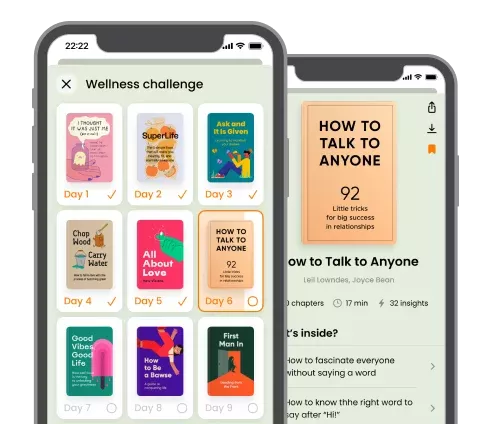67 Best Philosophy Books
Discover a vast collection of philosophy books, exploring the depths of human thought and wisdom. Expand your mind with timeless philosophical works.
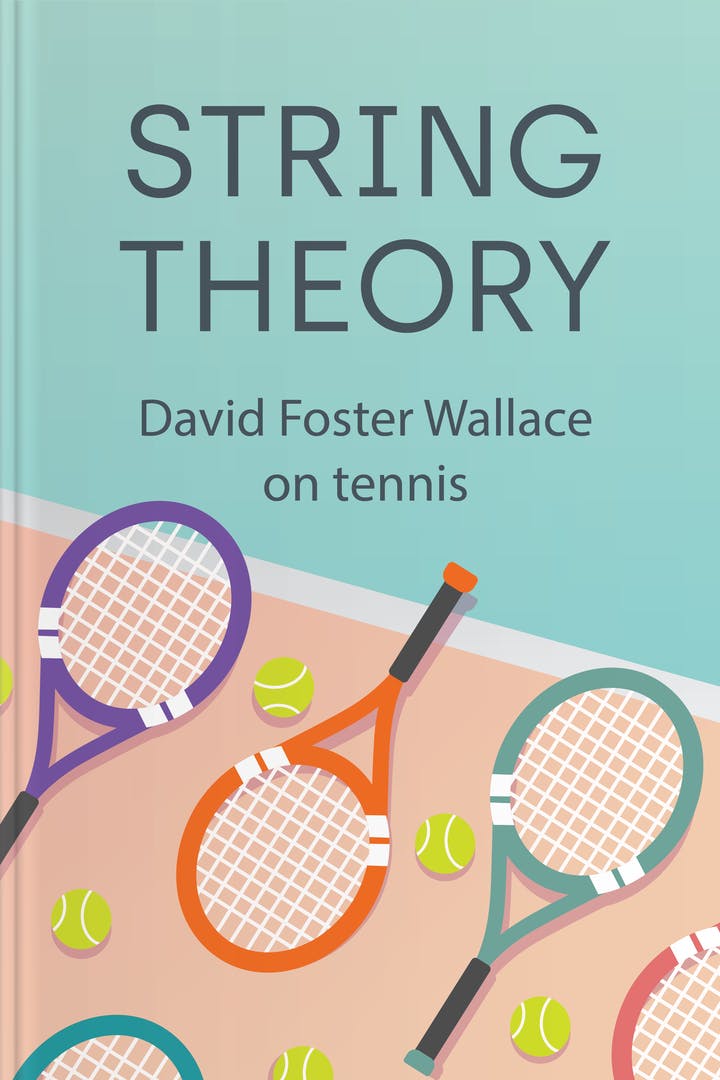 1
1String Theory
by David Foster Wallace
What is String Theory about?
In this captivating book, a renowned author delves into the world of tennis, exploring its intricacies and the profound impact it has on both players and spectators. With his signature wit and insight, the author dissects the sport, unraveling its psychological, philosophical, and cultural dimensions. Through a collection of essays, he offers a unique perspective on the game, revealing the beauty and complexity that lies within the strings of a tennis racket.
Who should read String Theory
Tennis enthusiasts seeking a deep exploration of the sport's intricacies.
Fans of David Foster Wallace's unique writing style and wit.
Individuals interested in the intersection of philosophy and sports.
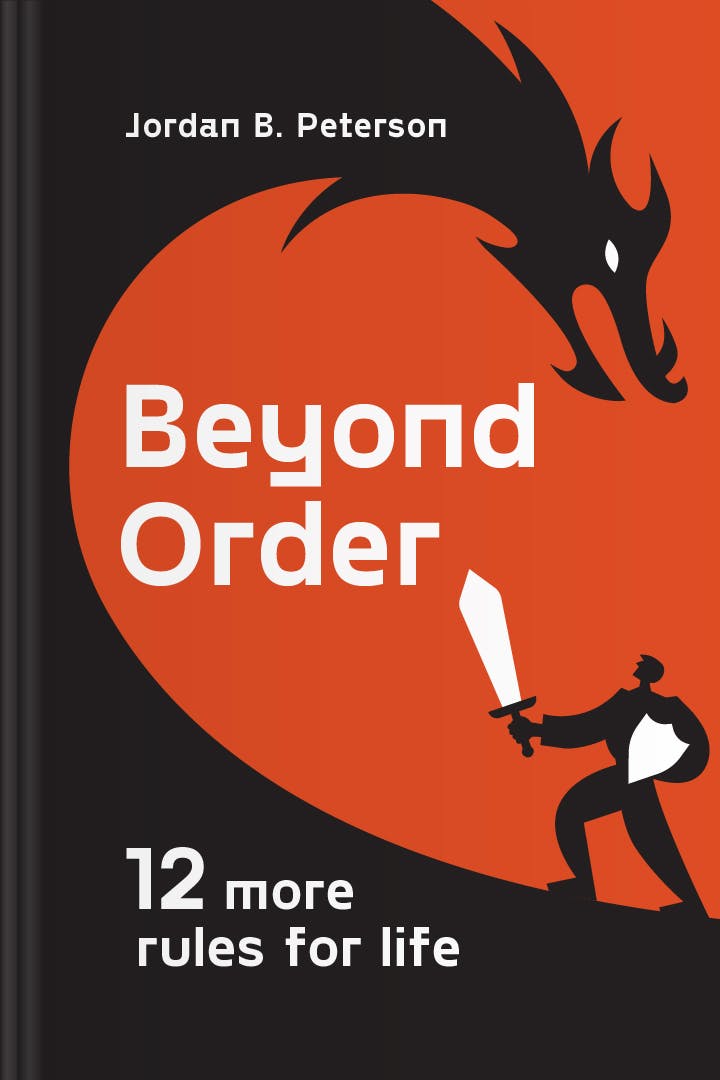 2
2Beyond Order
by Jordan B. Peterson
What is Beyond Order about?
In this thought-provoking book, the renowned author delves into the complexities of life, offering twelve additional rules to navigate the chaos and find meaning. Drawing from various disciplines, Peterson explores the importance of balance, responsibility, and personal growth. With his signature blend of psychology, philosophy, and practical advice, he challenges readers to confront their fears, embrace uncertainty, and strive for a life of purpose and fulfillment.
Who should read Beyond Order
Individuals seeking guidance and practical advice for personal growth.
Fans of Jordan B.
Peterson's previous work on self-improvement.
Those interested in exploring philosophical perspectives on life's complexities.
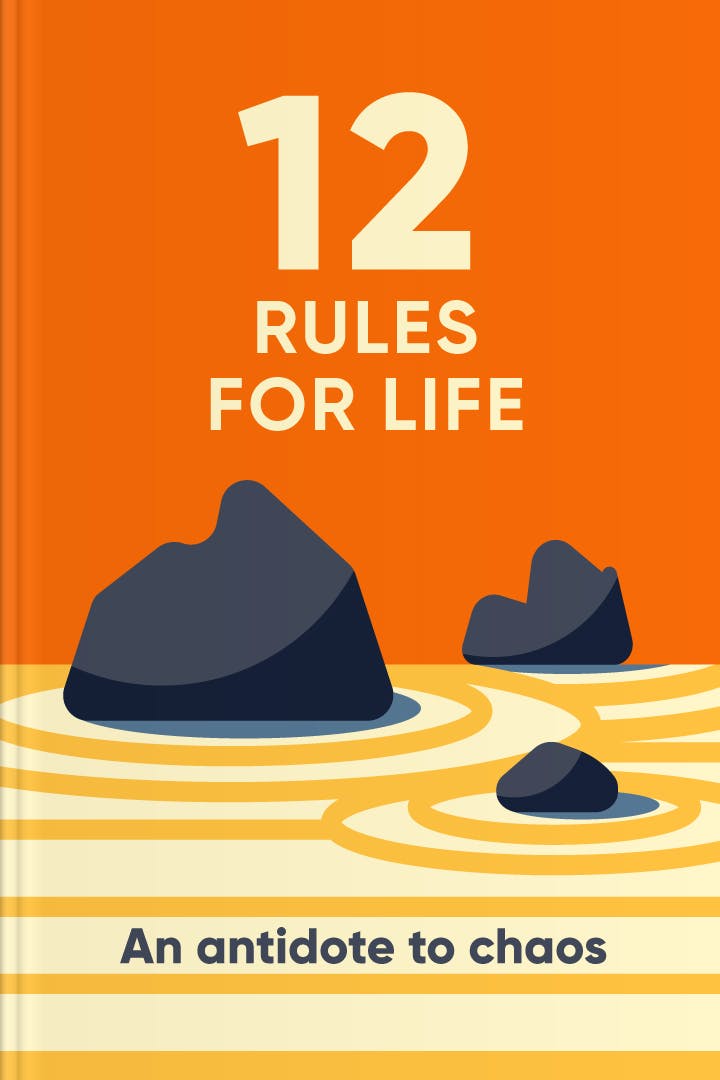 3
312 Rules For Life
by Jordan B. Peterson
What is 12 Rules For Life about?
In this thought-provoking book, the author offers twelve profound and practical rules to navigate the complexities of life and find meaning in a chaotic world. Drawing from a wide range of disciplines, including psychology, philosophy, and mythology, the author provides insightful advice on how to confront personal challenges, take responsibility, and strive for a better future. With a blend of wisdom and wit, this book serves as a guide to transform chaos into order and live a more fulfilling life.
Who should read 12 Rules For Life
Individuals seeking practical guidance for navigating life's complexities.
Those interested in understanding the psychological and philosophical underpinnings of personal growth.
Readers looking for a thought-provoking exploration of morality and meaning.
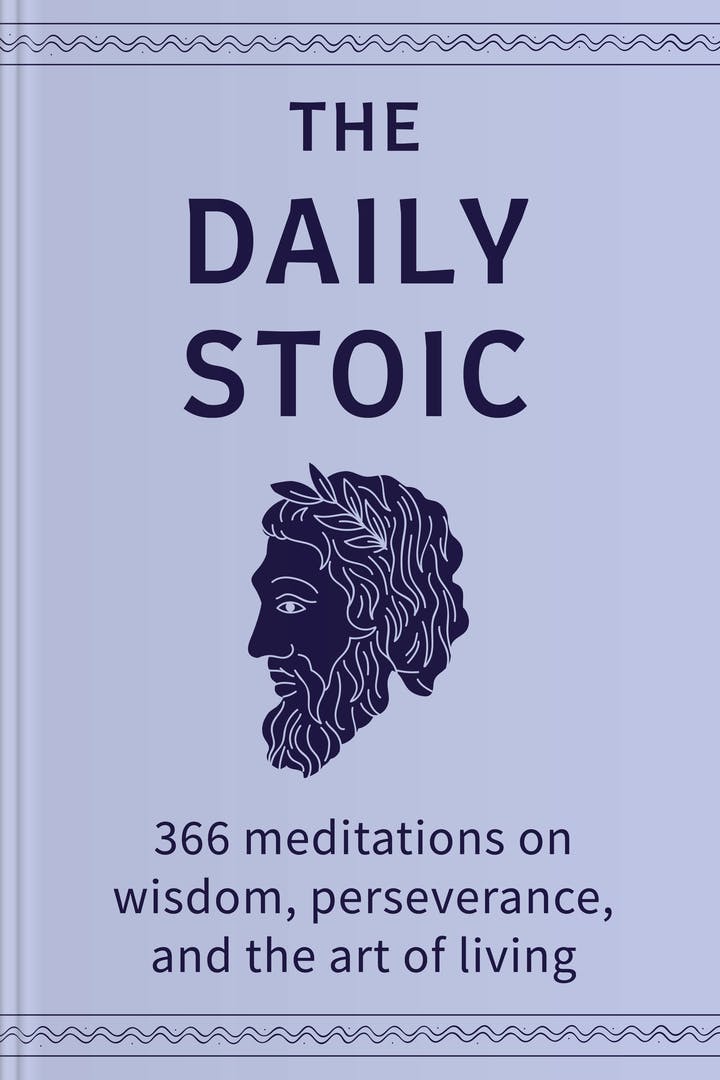 4
4The Daily Stoic
by Ryan Holiday & Stephen Hanselman
What is The Daily Stoic about?
"The Daily Stoic" is a thought-provoking book that offers daily meditations to help readers cultivate clarity, effectiveness, and serenity in their lives. Drawing from the wisdom of ancient Stoic philosophers, the book provides practical insights and exercises to navigate the challenges of modern life. With 366 meditations, one for each day of the year, this book serves as a valuable guide for personal growth and self-reflection.
Who should read The Daily Stoic
Individuals seeking daily inspiration and guidance for a stoic lifestyle.
Business professionals looking to enhance their clarity and effectiveness.
Anyone interested in cultivating serenity and inner peace.
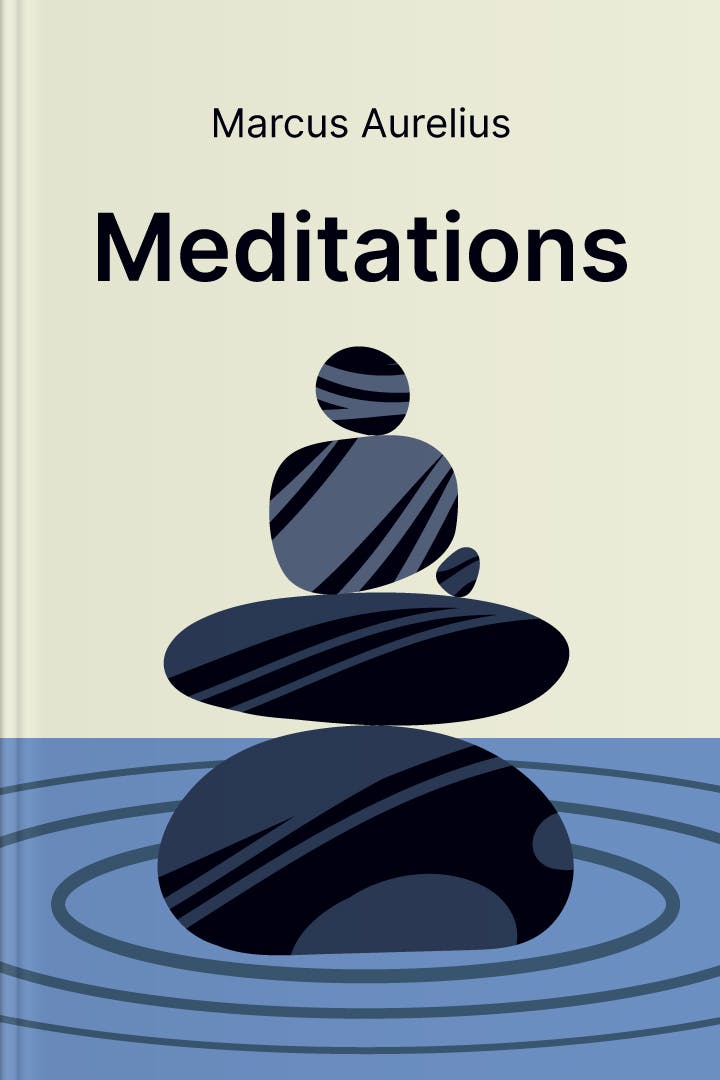 5
5Meditations
by Marcus Aurelius
What is Meditations about?
"Meditations" is a philosophical collection of thoughts and reflections written by a prominent Roman emperor. In this timeless book, the author explores various aspects of life, offering profound insights on topics such as self-improvement, resilience, and the pursuit of inner peace. Through his introspective musings, he encourages readers to embrace the present moment, confront challenges with stoicism, and cultivate a virtuous existence. This profound work serves as a guide to navigating the complexities of life and finding tranquility amidst chaos.
Who should read Meditations
Philosophy enthusiasts seeking ancient wisdom and stoic teachings.
Individuals looking for practical guidance on living a virtuous life.
Those interested in exploring the thoughts of a Roman emperor.
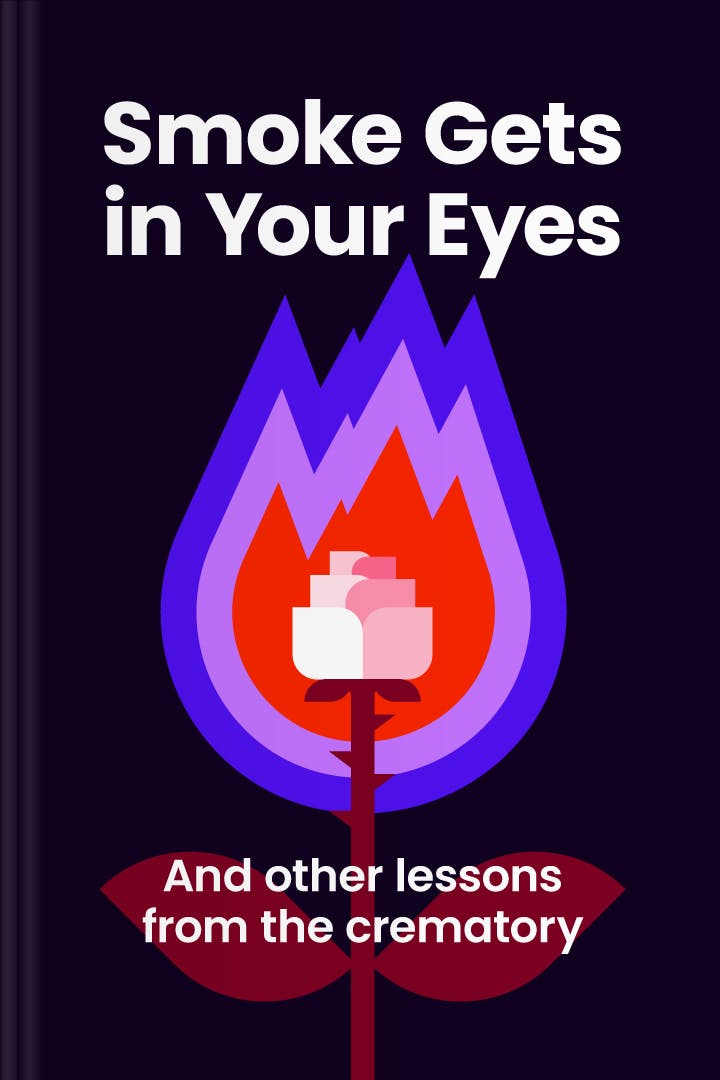 6
6Smoke Gets in Your Eyes
by Caitlin Doughty
What is Smoke Gets in Your Eyes about?
In this thought-provoking memoir, the author takes readers on a captivating journey into the world of death and dying. Through her experiences working in a crematory, Caitlin Doughty explores the taboo subject of death with humor, honesty, and compassion. From the practicalities of cremation to the cultural rituals surrounding death, this book offers a unique perspective on mortality, challenging societal norms and encouraging readers to confront their own mortality.
Who should read Smoke Gets in Your Eyes
Those curious about the inner workings of a crematory.
Individuals seeking a unique perspective on death and dying.
Funeral industry professionals looking for insights and reflections.
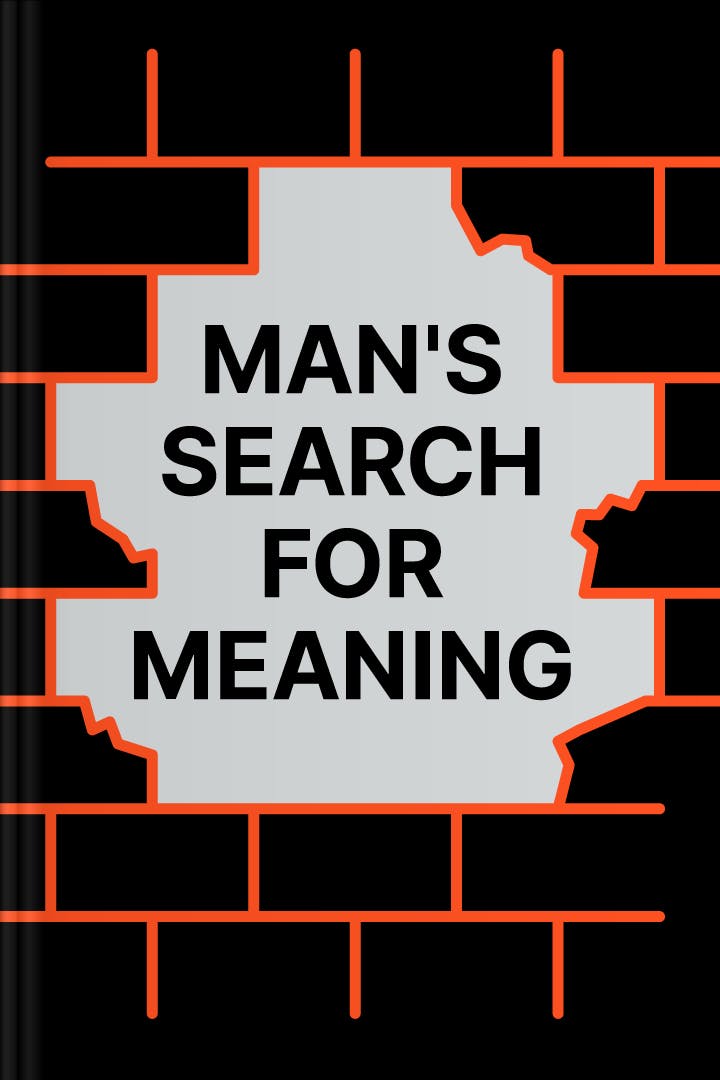 7
7Man’s Search for Meaning
by Viktor E. Frankl
What is Man’s Search for Meaning about?
In this profound and thought-provoking book, a renowned psychiatrist shares his experiences as a prisoner in Nazi concentration camps during World War II. Through his harrowing journey, he explores the depths of human suffering and resilience, ultimately revealing the importance of finding meaning in life even in the most challenging circumstances. With profound insights and a powerful message, this book offers a unique perspective on the human condition and the pursuit of happiness.
Who should read Man’s Search for Meaning
Individuals seeking to find purpose and meaning in their lives.
Psychologists and mental health professionals interested in existential therapy.
Anyone looking for inspiration and insight into the human condition.
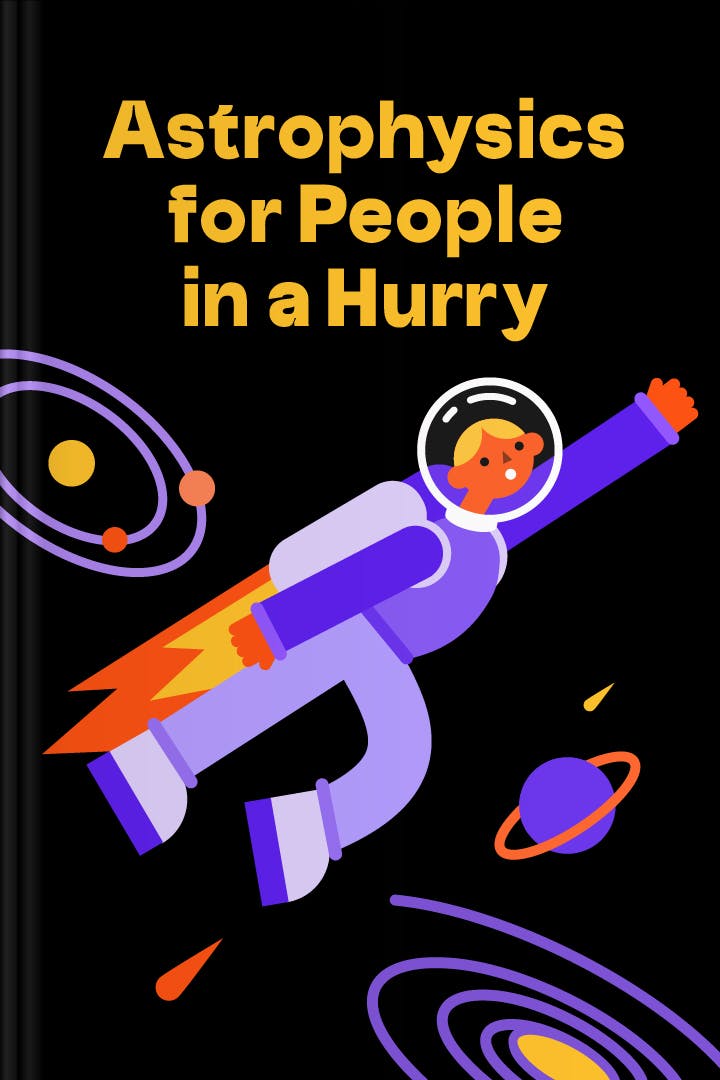 8
8Astrophysics for People in a Hurry
by Neil deGrasse Tyson
What is Astrophysics for People in a Hurry about?
In this concise and accessible book, a renowned astrophysicist takes readers on a captivating journey through the cosmos. Exploring the fundamental concepts of astrophysics, Neil deGrasse Tyson breaks down complex theories and discoveries into bite-sized explanations. From the Big Bang to black holes, dark matter to the search for extraterrestrial life, this book offers a quick and enlightening exploration of the wonders of the universe, perfect for those with limited time but a burning curiosity about the cosmos.
Who should read Astrophysics for People in a Hurry
Science enthusiasts seeking a concise overview of astrophysics concepts.
Busy individuals looking for a quick and accessible introduction to astrophysics.
Curious minds eager to explore the wonders of the universe.
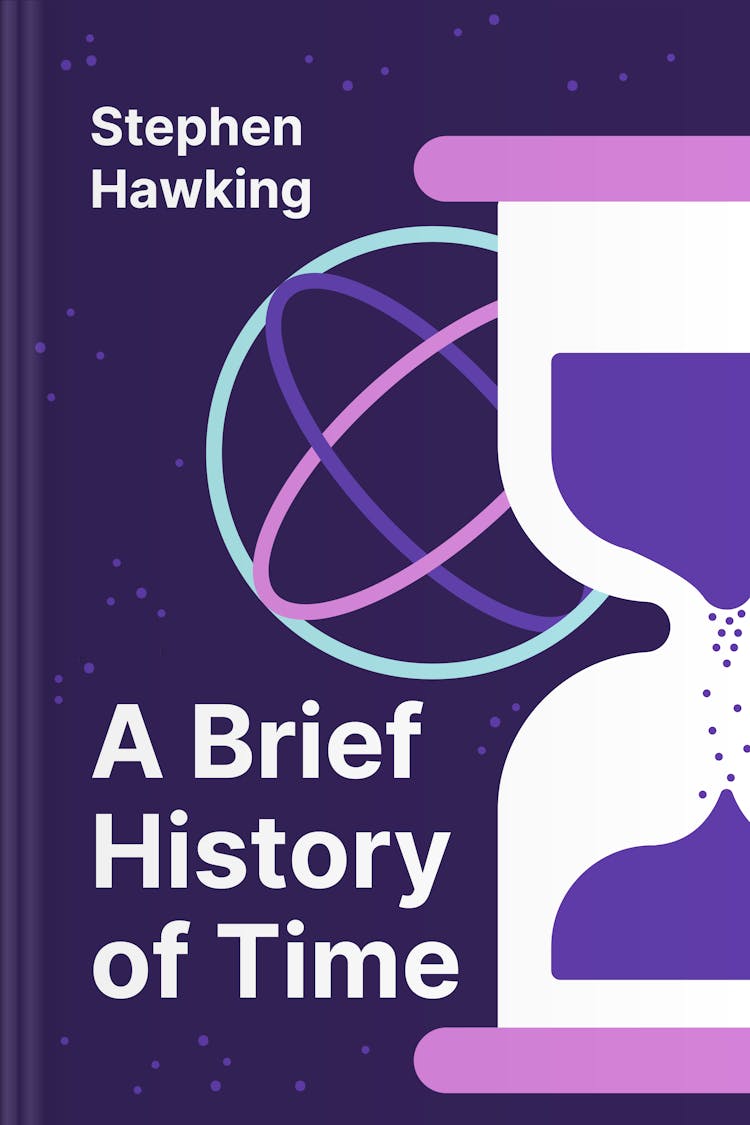 9
9A Brief History of Time
by Stephen Hawking, PhD
What is A Brief History of Time about?
In this thought-provoking exploration, a renowned physicist delves into the mysteries of the universe, unraveling complex concepts such as black holes, the Big Bang, and the nature of time itself. With clarity and wit, the author takes readers on a journey through the history of scientific discoveries, offering a captivating glimpse into the fundamental questions that have fascinated humanity for centuries.
Who should read A Brief History of Time
Science enthusiasts seeking a comprehensive understanding of the universe.
Students and academics studying astrophysics and cosmology.
Curious individuals interested in exploring the mysteries of time and space.
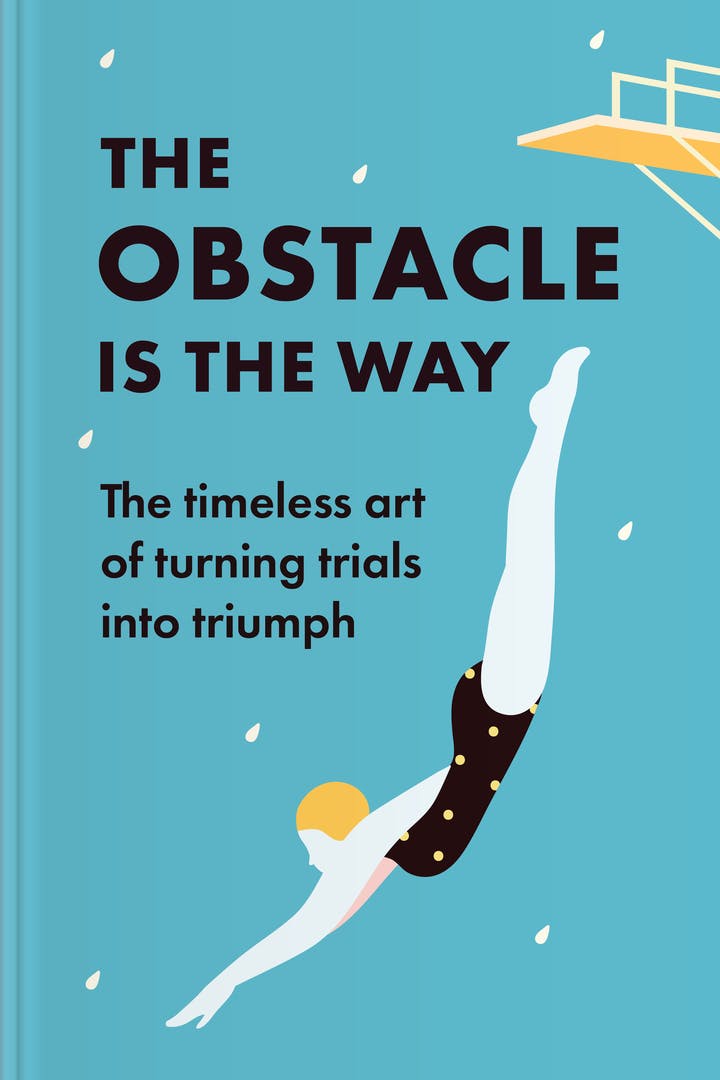 10
10The Obstacle Is the Way
by Ryan Holiday
What is The Obstacle Is the Way about?
"The Obstacle Is the Way" by Ryan Holiday is a guide that teaches readers how to transform challenges into opportunities for personal growth and success. Drawing inspiration from ancient Stoic philosophy, the book offers practical strategies and timeless wisdom to help individuals overcome obstacles, develop resilience, and achieve their goals. With real-life examples and actionable advice, this book serves as a roadmap for turning trials into triumphs and embracing adversity as a path to greatness.
Who should read The Obstacle Is the Way
Individuals seeking guidance on how to overcome challenges and achieve success.
Entrepreneurs and business professionals looking for strategies to navigate obstacles.
Anyone interested in learning how to transform adversity into opportunity.
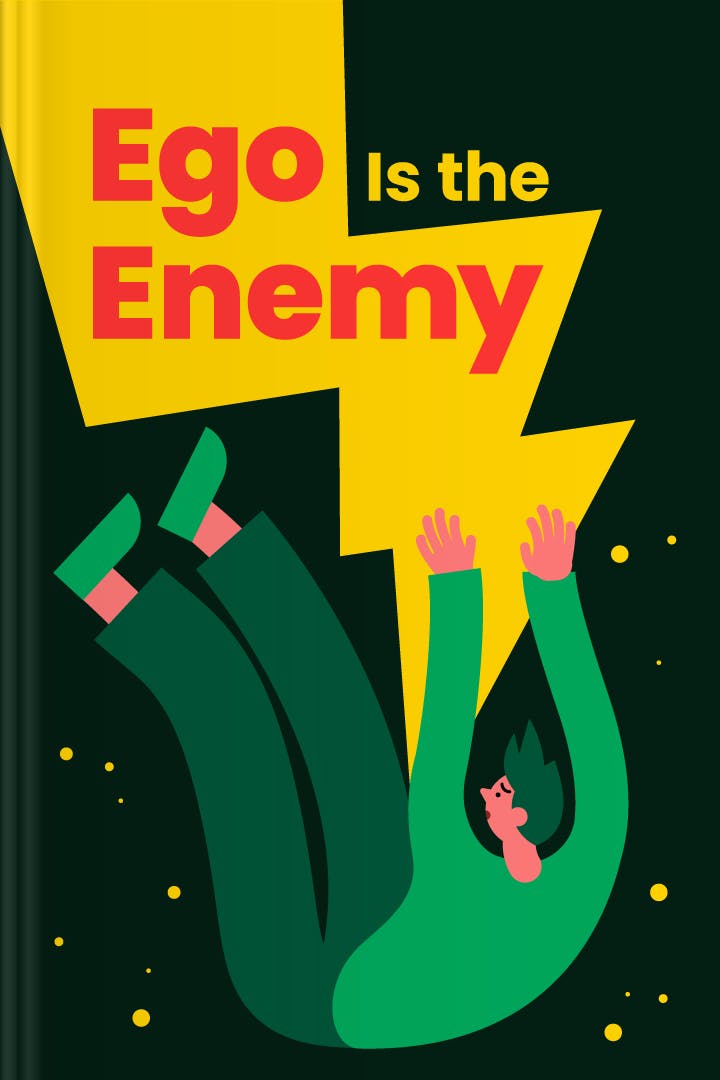 11
11Ego Is the Enemy
by Ryan Holiday
What is Ego Is the Enemy about?
In this thought-provoking book, the author explores the destructive nature of ego and its impact on personal and professional growth. Drawing from historical examples and personal anecdotes, he delves into the dangers of ego-driven behavior, emphasizing the importance of humility and self-awareness. With practical advice and insightful wisdom, "Ego Is the Enemy" serves as a guide to overcoming ego and embracing a more fulfilling and successful life.
Who should read Ego Is the Enemy
Aspiring leaders seeking to overcome their ego-driven obstacles.
Individuals looking to cultivate humility and self-awareness in their lives.
Anyone interested in understanding the detrimental effects of unchecked ego.
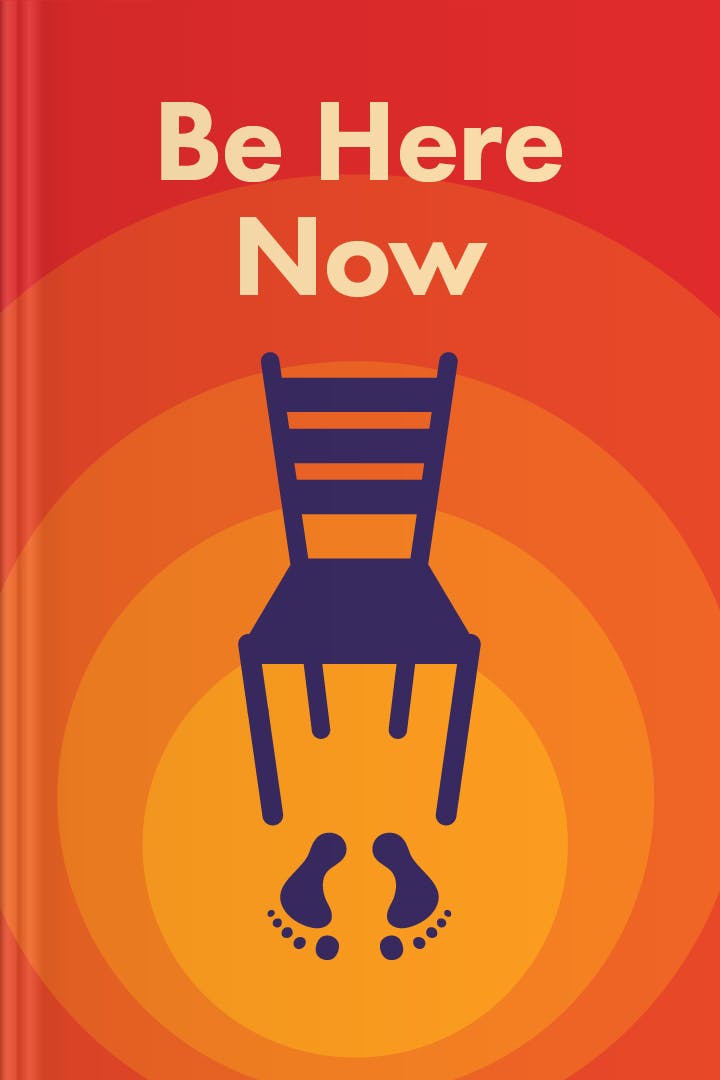 12
12Be Here Now
by Ram Dass
What is Be Here Now about?
"Be Here Now" is a spiritual guide that takes readers on a transformative journey towards self-discovery and enlightenment. Written by a renowned author, this book explores the power of mindfulness, meditation, and the pursuit of inner peace. Through personal anecdotes, philosophical insights, and practical teachings, it encourages readers to embrace the present moment, let go of attachments, and find profound meaning in life. This timeless classic offers a roadmap for spiritual awakening and a deeper connection with oneself and the world.
Who should read Be Here Now
Individuals seeking spiritual enlightenment and self-discovery.
Those interested in exploring Eastern philosophy and mindfulness practices.
People looking for guidance on living a more present and meaningful life.
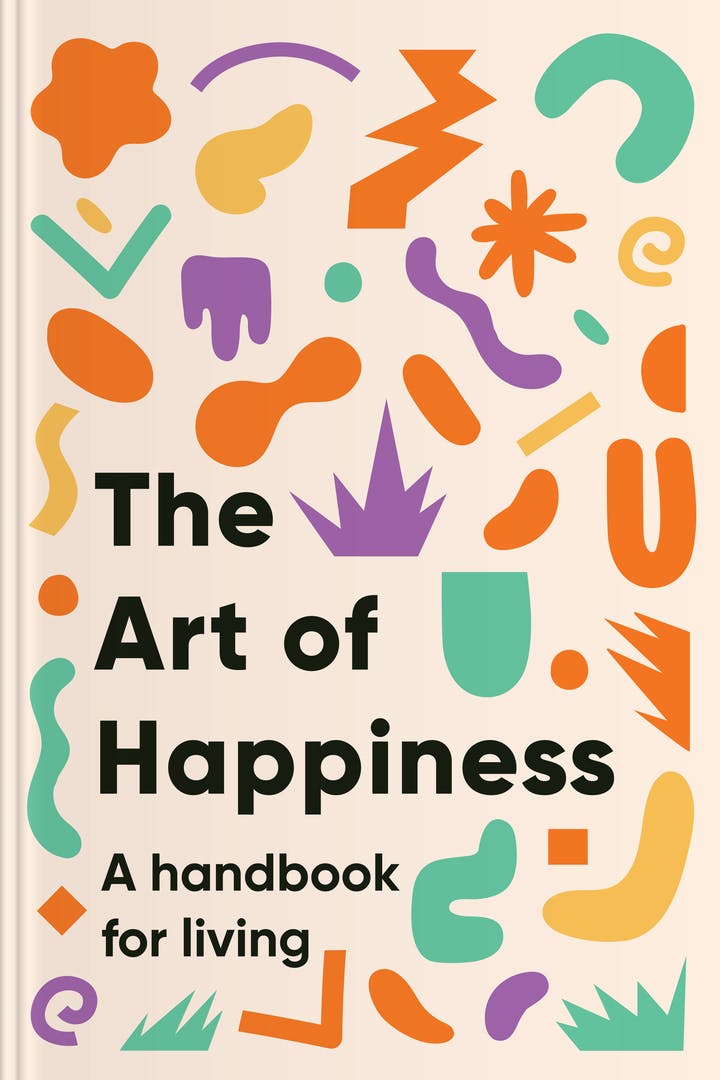 13
13The Art of Happiness
by Dalai Lama
What is The Art of Happiness about?
"The Art of Happiness" is a profound and enlightening guide that explores the Dalai Lama's teachings on finding true happiness and contentment in life. Drawing from his own experiences and Buddhist philosophy, the book offers practical advice and spiritual insights on overcoming suffering, cultivating compassion, and embracing mindfulness. With wisdom and compassion, the Dalai Lama shares invaluable lessons that can transform our perspective and lead us towards a more joyful and fulfilling existence.
Who should read The Art of Happiness
Individuals seeking guidance on finding lasting happiness and inner peace.
Those interested in understanding the Dalai Lama's teachings on happiness.
Anyone looking to cultivate a positive mindset and improve well-being.
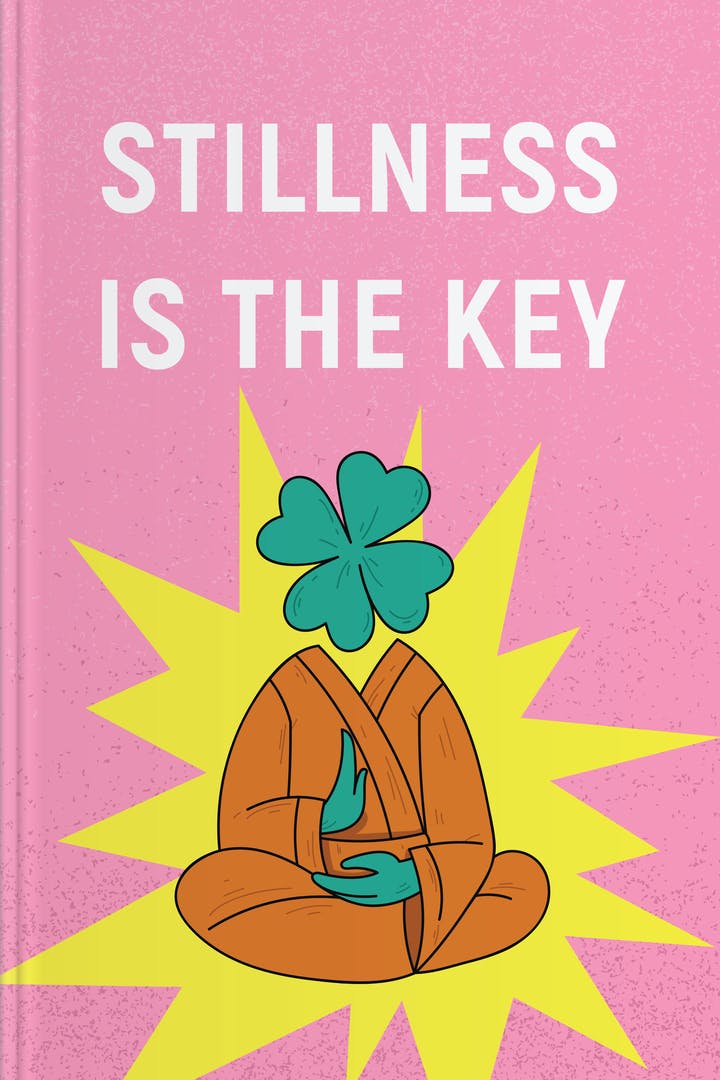 14
14Stillness Is the Key
by Ryan Holiday
What is Stillness Is the Key about?
In this insightful and thought-provoking book, the author explores the power of stillness in a chaotic world. Drawing from ancient philosophy, historical figures, and personal anecdotes, he reveals how finding moments of calm and clarity can lead to greater success, happiness, and fulfillment. With practical advice and timeless wisdom, "Stillness Is the Key" offers a guide to cultivating inner peace and unlocking our true potential in an increasingly busy and distracted world.
Who should read Stillness Is the Key
Individuals seeking inner peace and tranquility in their lives.
Busy professionals looking for strategies to find calm amidst chaos.
Anyone interested in unlocking their full potential through stillness.
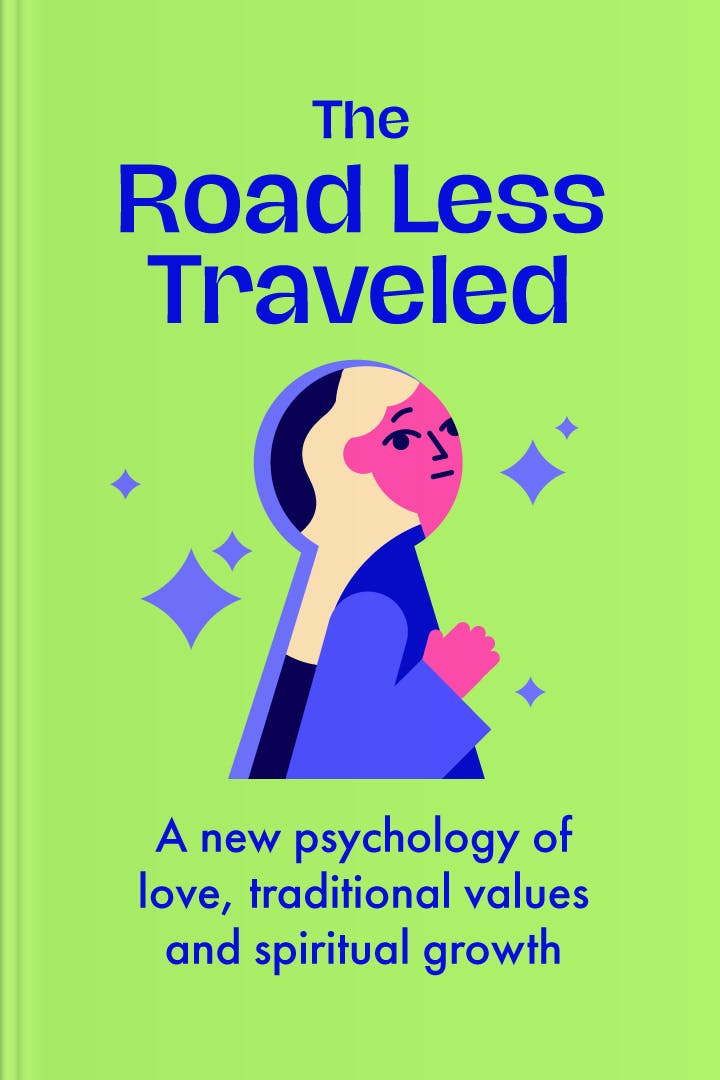 15
15The Road Less Traveled
by M. Scott Peck, M.D.
What is The Road Less Traveled about?
"The Road Less Traveled" is a thought-provoking book that explores the intersection of psychology, love, traditional values, and spiritual growth. Written by a renowned psychiatrist, it offers a fresh perspective on personal development and the challenges we face in our relationships and inner lives. With profound insights and practical advice, this book guides readers on a transformative journey towards self-discovery, emotional well-being, and a more fulfilling existence.
Who should read The Road Less Traveled
Individuals seeking a deeper understanding of love and relationships.
Those interested in exploring the intersection of psychology and spirituality.
Readers looking for guidance on personal growth and self-discovery.
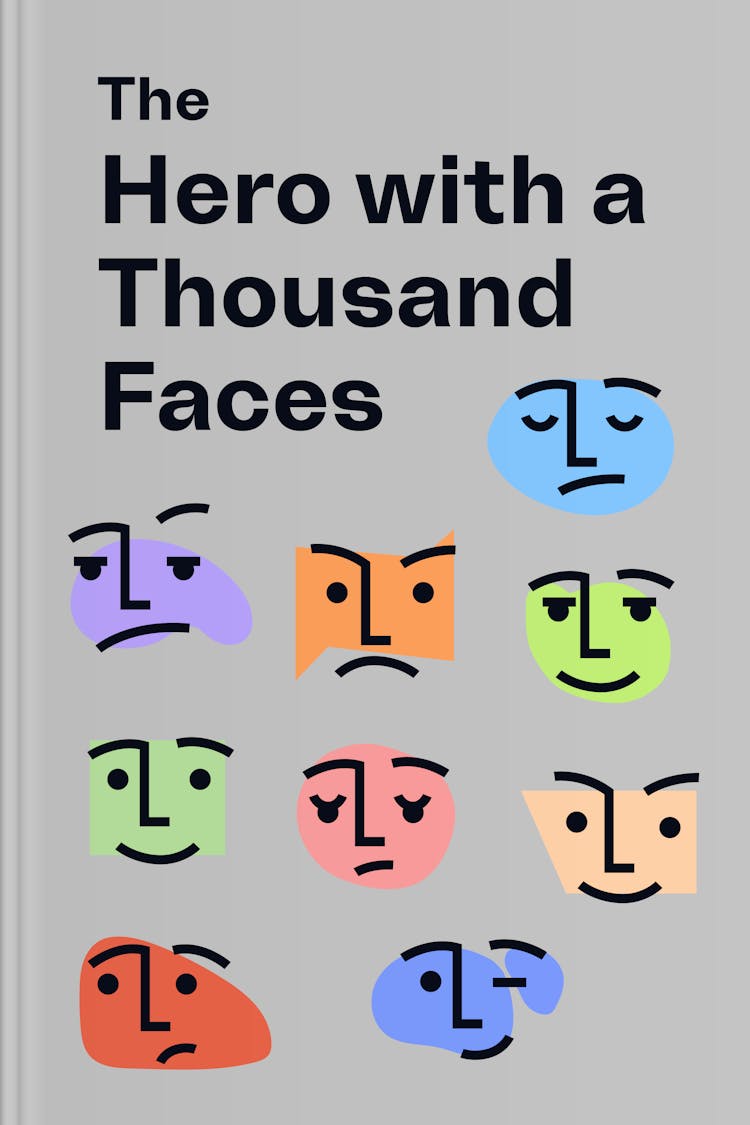 16
16The Hero With a Thousand Faces
by Joseph Campbell
What is The Hero With a Thousand Faces about?
"The Hero With a Thousand Faces" explores the universal patterns and archetypes found in myths and legends from various cultures. Joseph Campbell delves into the hero's journey, a transformative adventure that follows a consistent structure across different narratives. By analyzing ancient tales and modern stories, Campbell reveals the profound significance of these mythic patterns in shaping human experiences and providing guidance for personal growth and self-discovery.
Who should read The Hero With a Thousand Faces
Aspiring writers seeking to understand the universal hero's journey.
Scholars of mythology and comparative religion exploring archetypal patterns.
Individuals on a personal quest for self-discovery and transformation.
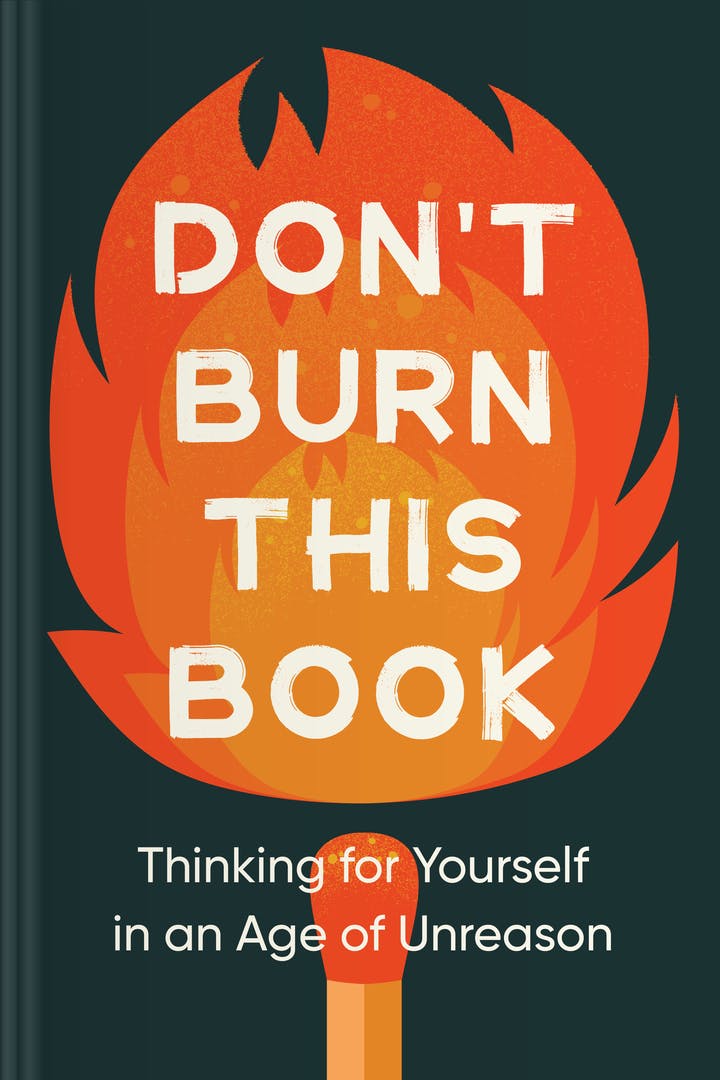 17
17Don’t Burn This Book
by Dave Rubin
What is Don’t Burn This Book about?
In this thought-provoking book, the author challenges readers to embrace critical thinking and individuality in a world plagued by irrationality. With wit and insight, he explores the dangers of groupthink, cancel culture, and political correctness, urging readers to question prevailing narratives and form their own opinions. Through personal anecdotes and compelling arguments, "Don't Burn This Book" serves as a rallying cry for intellectual independence and the preservation of free speech in an increasingly polarized society.
Who should read Don’t Burn This Book
Individuals seeking to challenge prevailing narratives and think critically.
Those interested in understanding the dangers of groupthink and echo chambers.
Readers looking for practical advice on navigating ideological polarization.
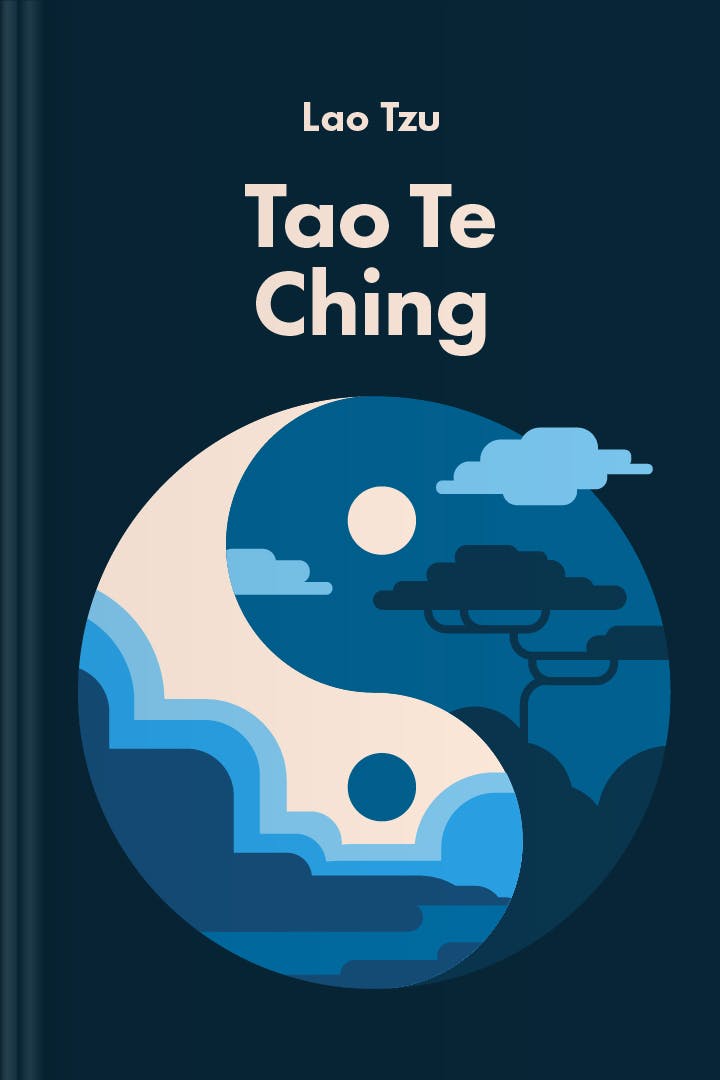 18
18Tao Te Ching
by Lao-Tzu, John Minford
What is Tao Te Ching about?
This ancient philosophical text, translated by John Minford, delves into the teachings of Lao-Tzu, a revered Chinese philosopher. "Tao Te Ching" explores the concept of Tao, the way of nature, and its profound impact on human existence. Through concise verses, it offers insights on living a balanced and harmonious life, emphasizing the importance of simplicity, humility, and the interconnectedness of all things. This timeless book serves as a guide to finding inner peace and understanding the fundamental principles of the universe.
Who should read Tao Te Ching
Philosophy enthusiasts seeking ancient wisdom and spiritual enlightenment.
Individuals interested in Eastern philosophy and Taoist principles.
Readers looking for a profound and thought-provoking philosophical text.
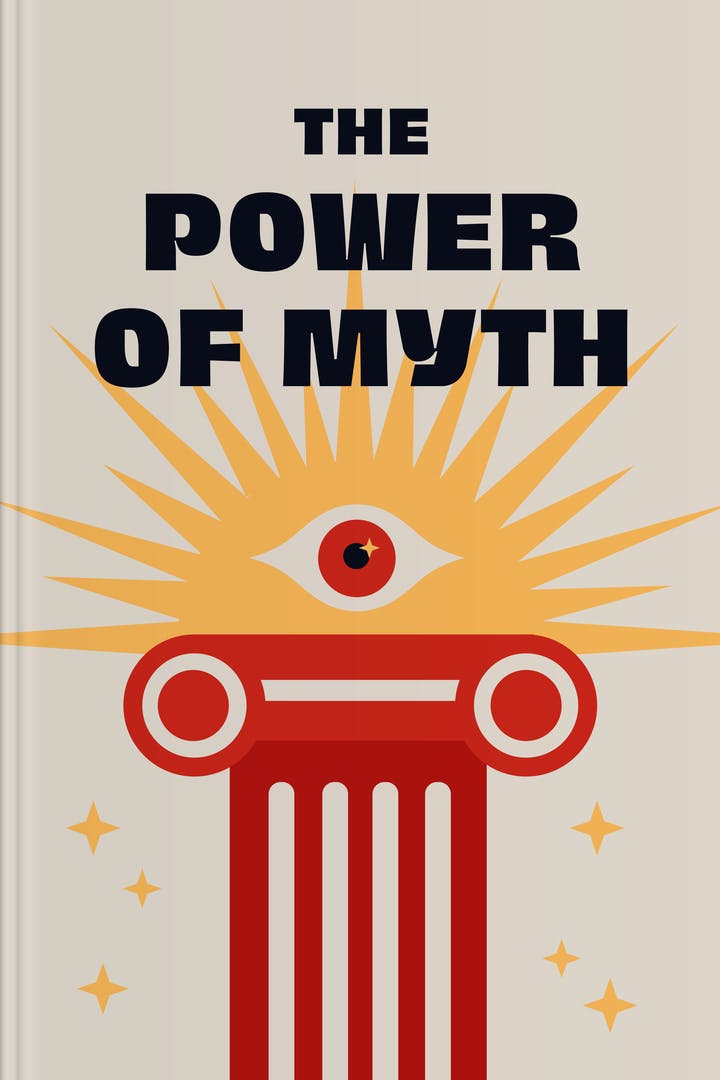 19
19The Power of Myth
by Joseph Campbell, Bill Moyers
What is The Power of Myth about?
"The Power of Myth" explores the universal themes and symbols found in myths across different cultures, revealing their relevance in our modern lives. Through a series of conversations between renowned mythologist Joseph Campbell and journalist Bill Moyers, this book delves into the power of storytelling, the hero's journey, and the role of mythology in shaping our understanding of the world. It offers profound insights into the human experience and the enduring significance of myth in our collective consciousness.
Who should read The Power of Myth
Mythology enthusiasts seeking a deeper understanding of ancient stories.
Writers and storytellers looking to explore the universal themes in myths.
Individuals interested in the intersection of spirituality and mythology.
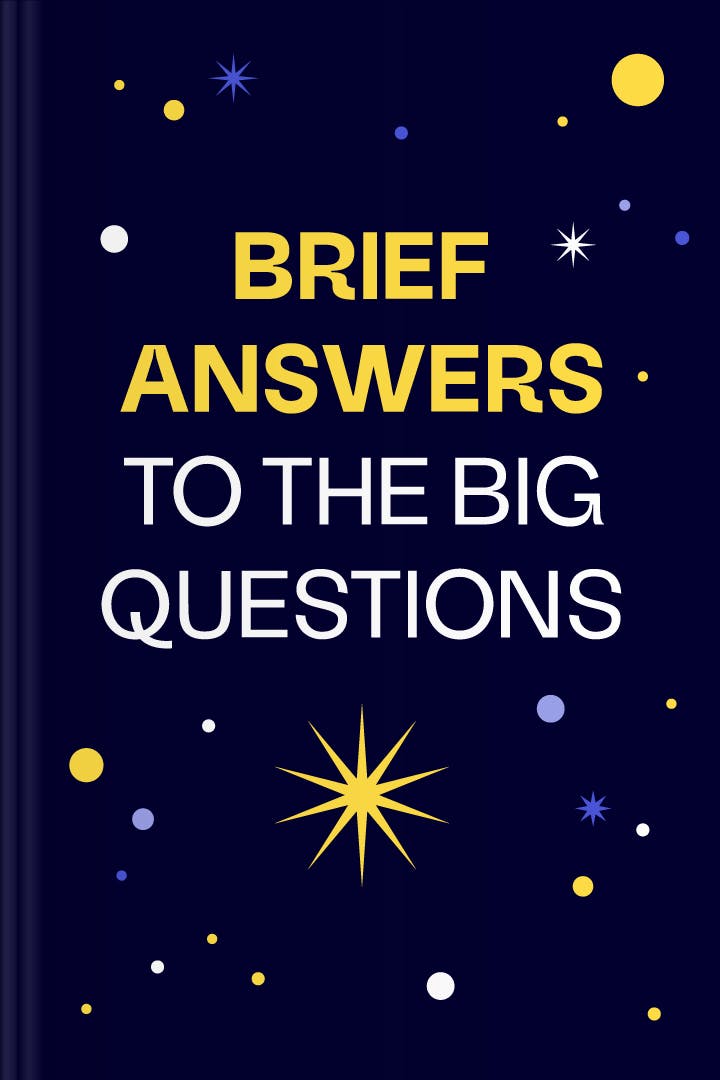 20
20Brief Answers to the Big Questions
by Stephen Hawking
What is Brief Answers to the Big Questions about?
In this thought-provoking book, a renowned scientist tackles some of humanity's most pressing questions. With his signature clarity, Stephen Hawking explores topics like the existence of God, the future of artificial intelligence, and the possibility of time travel. Drawing on his vast knowledge of physics and cosmology, he offers concise and insightful answers that challenge our understanding of the universe and our place in it. A captivating read that invites readers to ponder the mysteries of existence.
Who should read Brief Answers to the Big Questions
Science enthusiasts seeking accessible explanations to profound cosmic questions.
Individuals curious about the future of humanity and our universe.
Readers interested in Stephen Hawking's final thoughts on life's biggest mysteries.
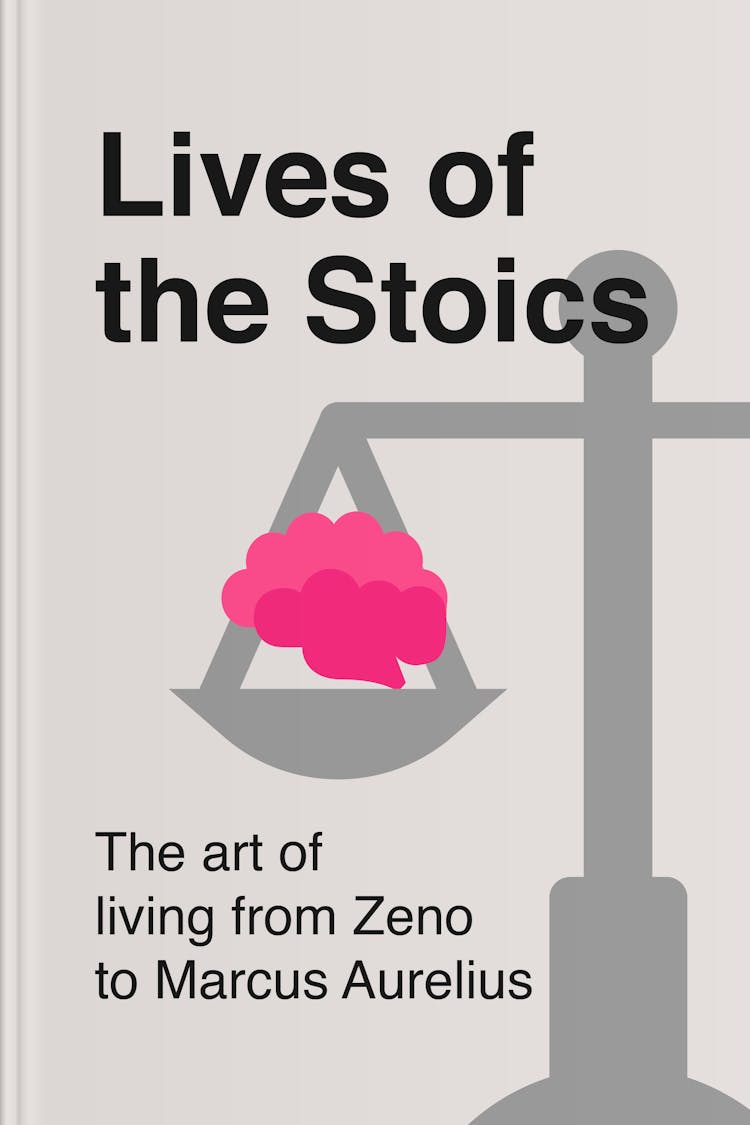 21
21Lives of the Stoics
by Ryan Holiday, Stephen Hanselman
What is Lives of the Stoics about?
"Lives of the Stoics" explores the teachings and philosophies of ancient Stoic thinkers, from Zeno to Marcus Aurelius. This insightful book delves into the lives of these influential figures, revealing their wisdom and practical advice on how to navigate life's challenges. With a blend of historical anecdotes and modern interpretations, the authors offer a compelling guide to applying Stoic principles in our own lives, fostering resilience, inner peace, and a meaningful existence.
Who should read Lives of the Stoics
Philosophy enthusiasts seeking to explore the teachings of ancient Stoics.
Individuals interested in adopting Stoic principles for personal growth.
History buffs intrigued by the lives of influential Stoic philosophers.
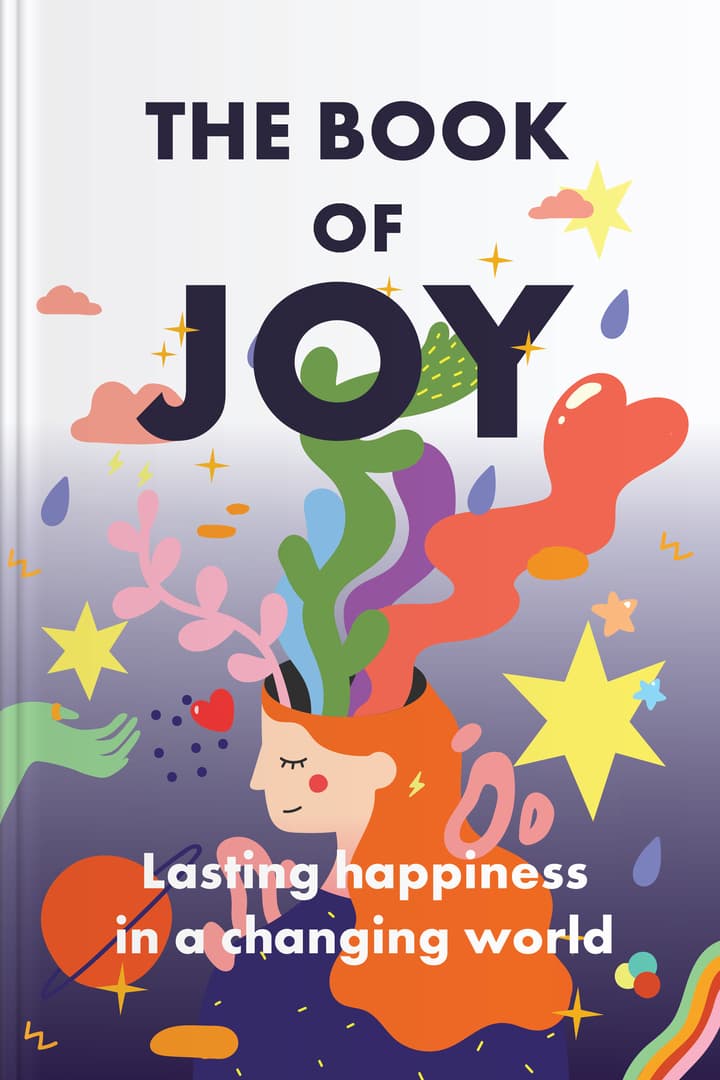 22
22The Book of Joy
by Dalai Lama XIV, Desmond Tutu
What is The Book of Joy about?
"The Book of Joy" is a profound exploration of the pursuit of lasting happiness in a world filled with constant change. Written by two influential spiritual leaders, this book delves into the wisdom and teachings of the Dalai Lama XIV and Desmond Tutu. Through their intimate conversations, they share valuable insights, practical advice, and personal anecdotes, offering readers a guide to finding joy and inner peace amidst life's challenges.
Who should read The Book of Joy
Individuals seeking guidance on finding lasting happiness in a turbulent world.
Those interested in the wisdom and teachings of Dalai Lama XIV and Desmond Tutu.
Readers looking for a profound and uplifting exploration of joy.
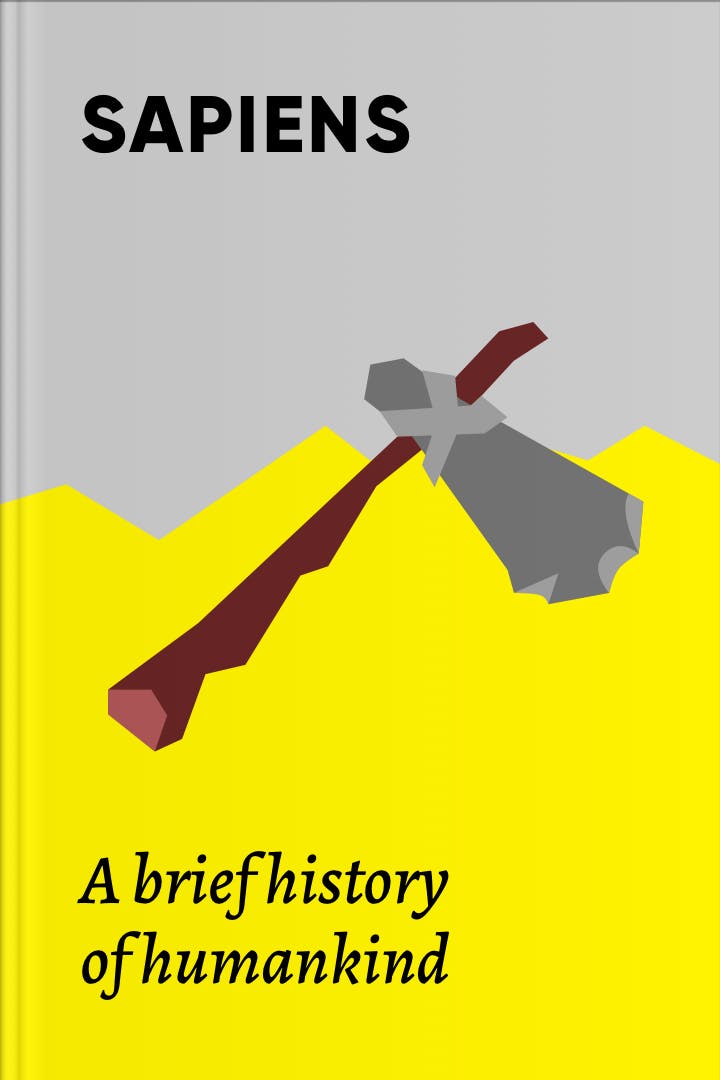 23
23Sapiens
by Yuval Noah Harari
What is Sapiens about?
In this thought-provoking book, the author takes readers on a captivating journey through the history of humankind. From the emergence of Homo sapiens to the present day, Harari explores the key milestones that shaped our species, including the agricultural revolution, the rise of empires, and the impact of technology. With a blend of science, anthropology, and philosophy, "Sapiens" offers a compelling and insightful perspective on the past, present, and future of humanity.
Who should read Sapiens
History enthusiasts seeking a comprehensive understanding of human evolution.
Philosophers and thinkers exploring the origins of human existence.
Students and academics studying anthropology and the development of civilizations.
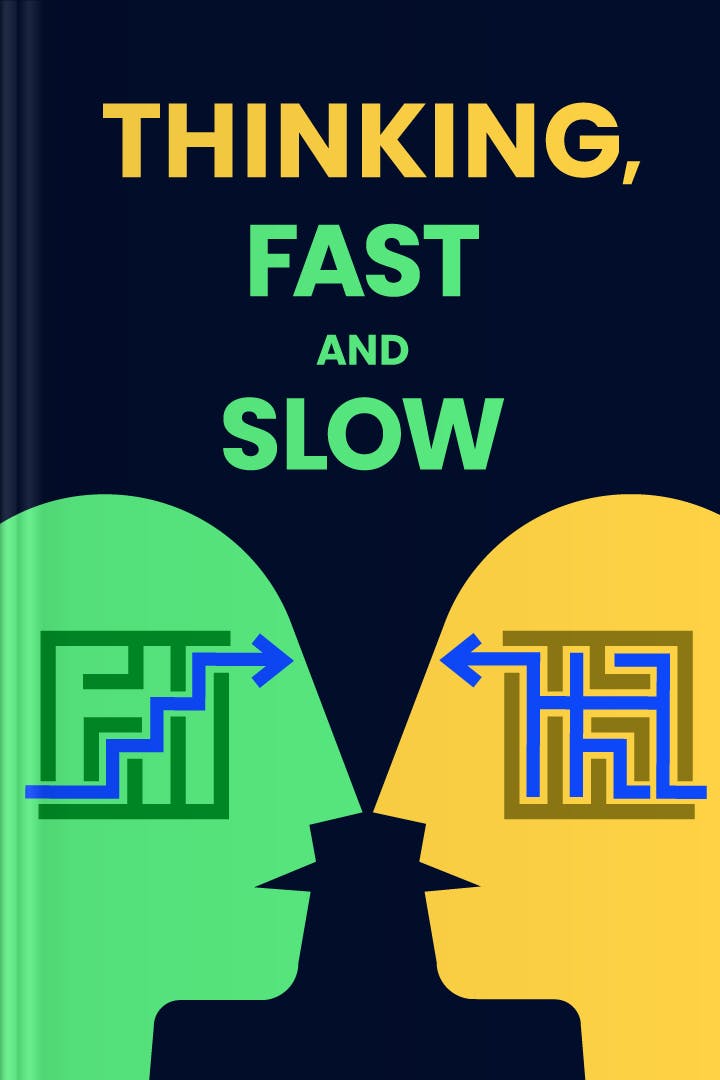 24
24Thinking, Fast and Slow
by Daniel Kahneman
What is Thinking, Fast and Slow about?
In this thought-provoking book, the author explores the two systems that drive our thinking: the fast, intuitive system and the slow, deliberate system. Drawing on decades of research, he reveals the biases and errors that often cloud our judgment, and offers insights into how we can make better decisions. With engaging anecdotes and compelling examples, this book challenges our understanding of decision-making and provides valuable tools for improving our thinking processes.
Who should read Thinking, Fast and Slow
Individuals interested in understanding the complexities of human decision-making.
Psychologists and behavioral economists seeking insights into cognitive processes.
Business professionals looking to improve their decision-making skills.
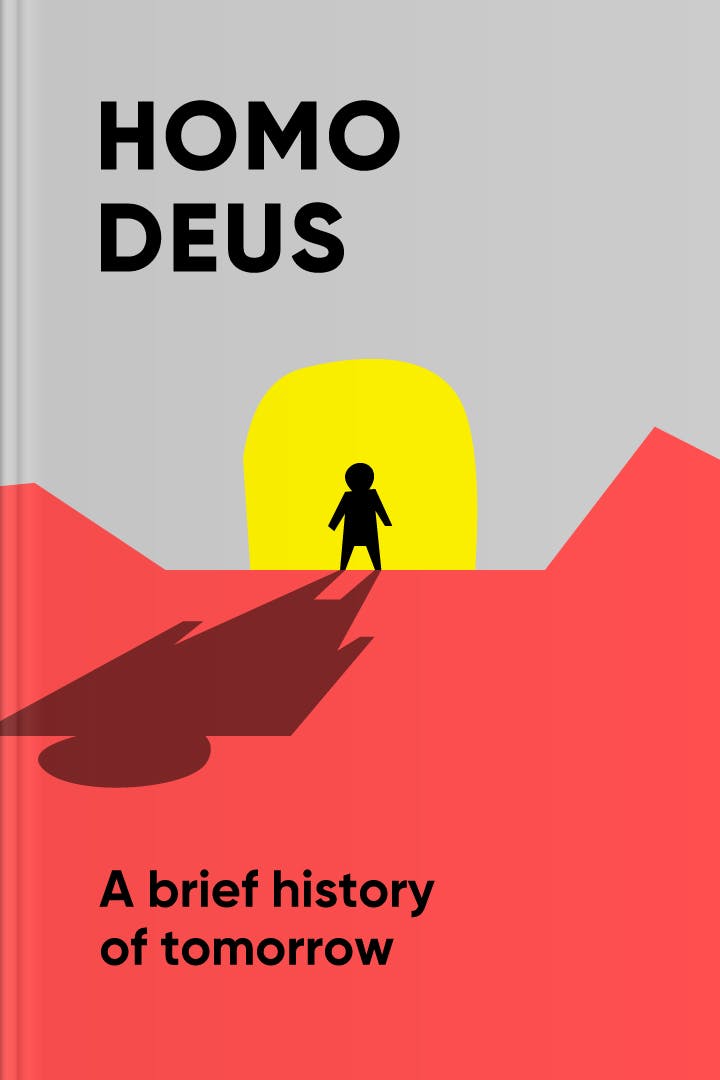 25
25Homo Deus
by Prof. Yuval Noah Harari
What is Homo Deus about?
In this thought-provoking book, a renowned professor explores the future of humanity. Drawing on history and cutting-edge science, the author delves into the potential paths that Homo sapiens may take in the coming years. From advancements in technology to the rise of artificial intelligence, this captivating exploration challenges our understanding of what it means to be human and offers a glimpse into the possibilities that lie ahead.
Who should read Homo Deus
Futurists and technology enthusiasts seeking insights into humanity's future.
History buffs interested in understanding the evolution of human society.
Philosophers and thinkers exploring the implications of technological advancements.
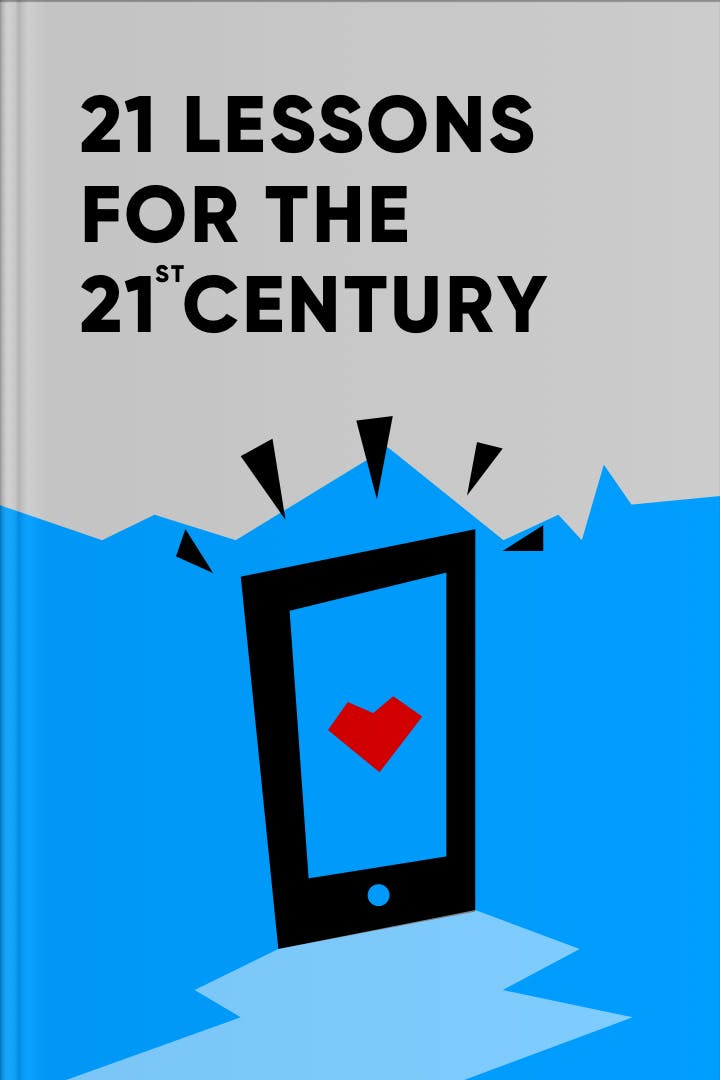 26
2621 Lessons for the 21st Century
by Yuval Noah Harari
What is 21 Lessons for the 21st Century about?
In this thought-provoking book, the renowned author delves into the pressing issues of our time. From the rise of artificial intelligence to the challenges of climate change, Harari offers insightful analysis and raises important questions about the future of humanity. Drawing on history, science, and philosophy, he provides twenty-one thought-provoking lessons that encourage readers to critically examine the complexities of the 21st century and navigate the uncertain path ahead.
Who should read 21 Lessons for the 21st Century
Individuals seeking to understand the complex challenges of the modern world.
Students and scholars interested in the future of humanity.
Anyone curious about the impact of technology and globalization.
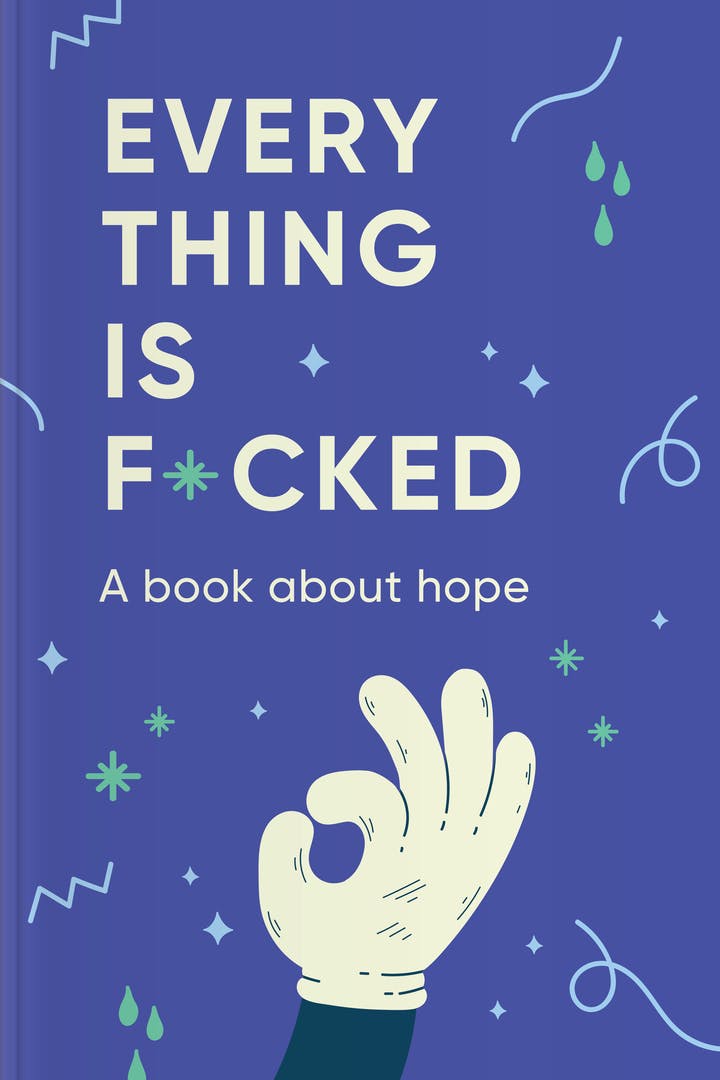 27
27Everything Is F*cked
by Mark Manson
What is Everything Is F*cked about?
In this thought-provoking book, the author delves into the concept of hope and its significance in our lives. With his signature blend of humor and brutal honesty, he explores how our modern world is plagued by a crisis of hope and offers insightful perspectives on how to navigate through it. Through engaging anecdotes and philosophical insights, this book challenges readers to question their beliefs and find a renewed sense of purpose in a seemingly chaotic world.
Who should read Everything Is F*cked
Individuals seeking a fresh perspective on finding hope in a chaotic world.
Readers interested in exploring the intersection of philosophy and self-improvement.
Anyone looking for a thought-provoking and humorous take on life's challenges.
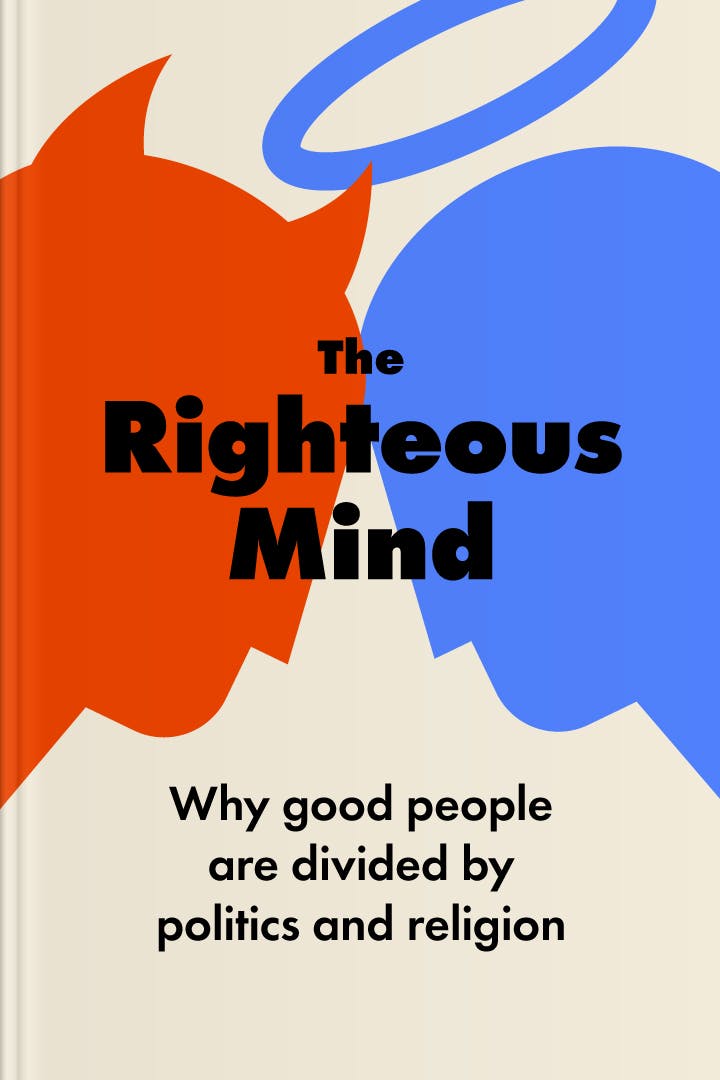 28
28The Righteous Mind
by Jonathan Haidt
What is The Righteous Mind about?
In this thought-provoking book, the author delves into the complex world of human morality, exploring why people with different political and religious beliefs often find themselves at odds. Drawing on extensive research and psychological insights, Haidt uncovers the underlying factors that shape our moral judgments and reveals how our innate sense of right and wrong can lead to deep divisions in society. A compelling exploration of the roots of moral diversity and the challenges it poses for understanding and bridging ideological divides.
Who should read The Righteous Mind
Individuals interested in understanding the psychological roots of political and religious divisions.
Social scientists and researchers studying moral psychology and human behavior.
Anyone seeking insights into bridging ideological gaps and fostering empathy.
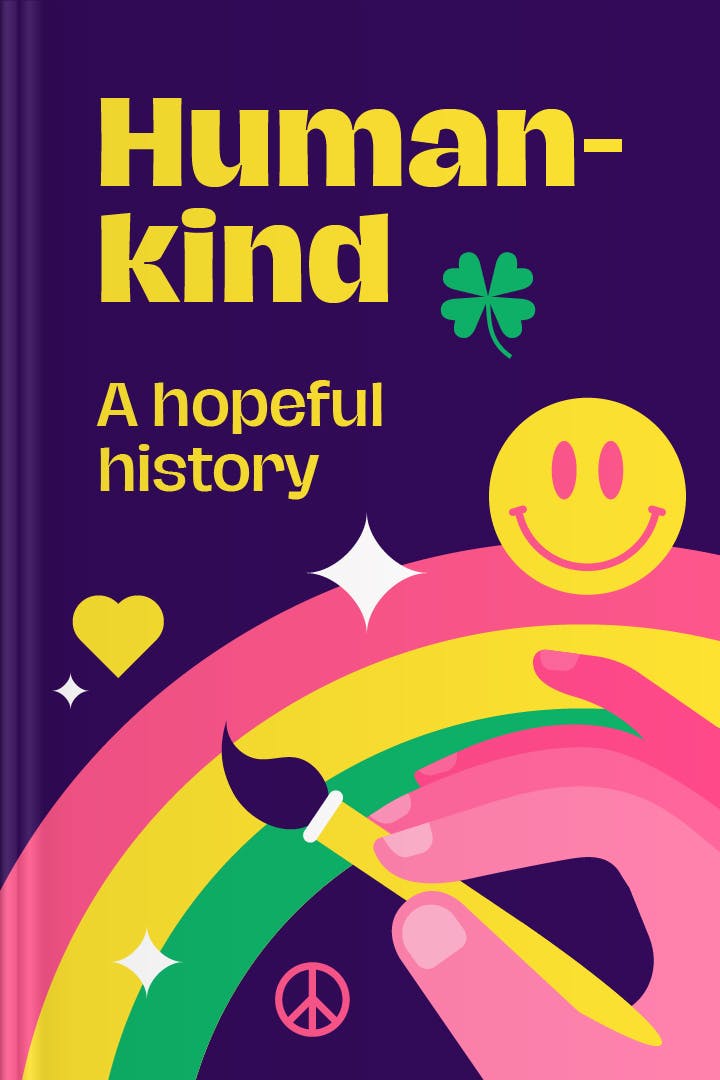 29
29Humankind
by Rutger Bregman
What is Humankind about?
In this thought-provoking book, Rutger Bregman challenges the prevailing belief that humans are inherently selfish and driven by self-interest. Drawing on a wealth of historical evidence and psychological research, he presents a compelling argument that humans are fundamentally good and cooperative beings. Bregman explores how this understanding can reshape our society, offering a hopeful vision for a more compassionate and empathetic future.
Who should read Humankind
Anyone seeking a fresh perspective on human nature and society.
Social scientists and historians interested in reevaluating humanity's potential.
Individuals looking for inspiration and hope in turbulent times.
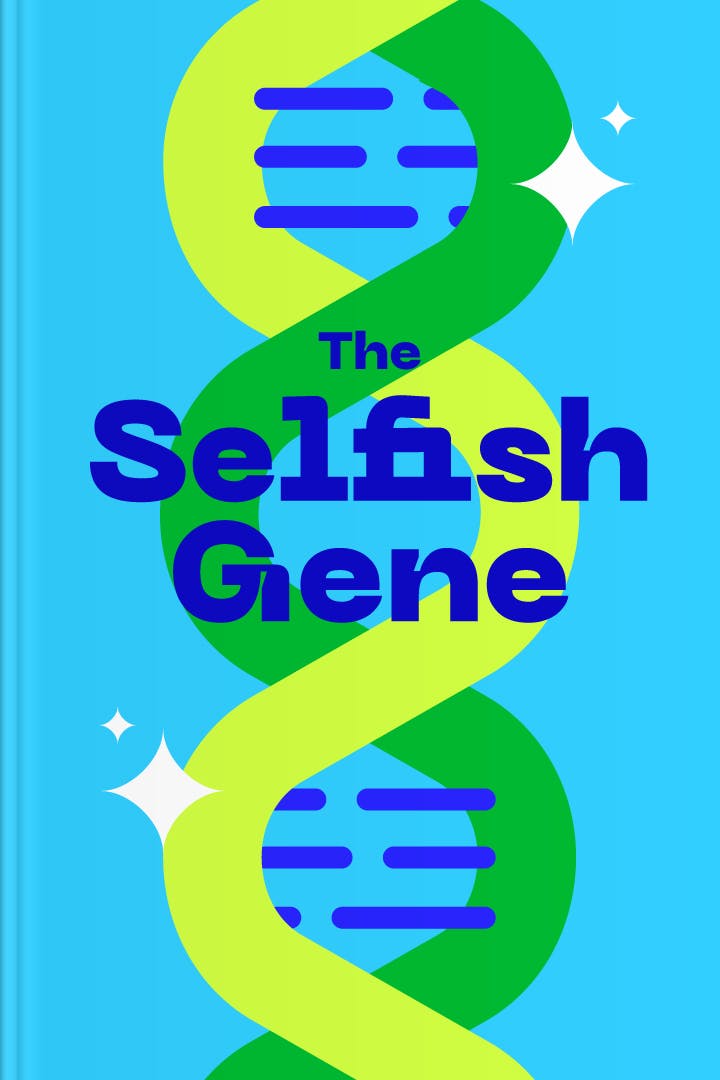 30
30The Selfish Gene
by Richard Dawkins
What is The Selfish Gene about?
"The Selfish Gene" explores the concept of evolution from a gene-centered perspective, challenging traditional notions of altruism and selflessness. Richard Dawkins delves into the intricate mechanisms by which genes ensure their own survival and propagation, ultimately shaping the behavior and characteristics of organisms. This thought-provoking book offers a captivating exploration of the fundamental role genes play in driving the evolution of life on Earth.
Who should read The Selfish Gene
Biology students seeking a comprehensive understanding of evolutionary theory.
Science enthusiasts interested in exploring the concept of gene-centered evolution.
Individuals curious about the impact of genes on human behavior.
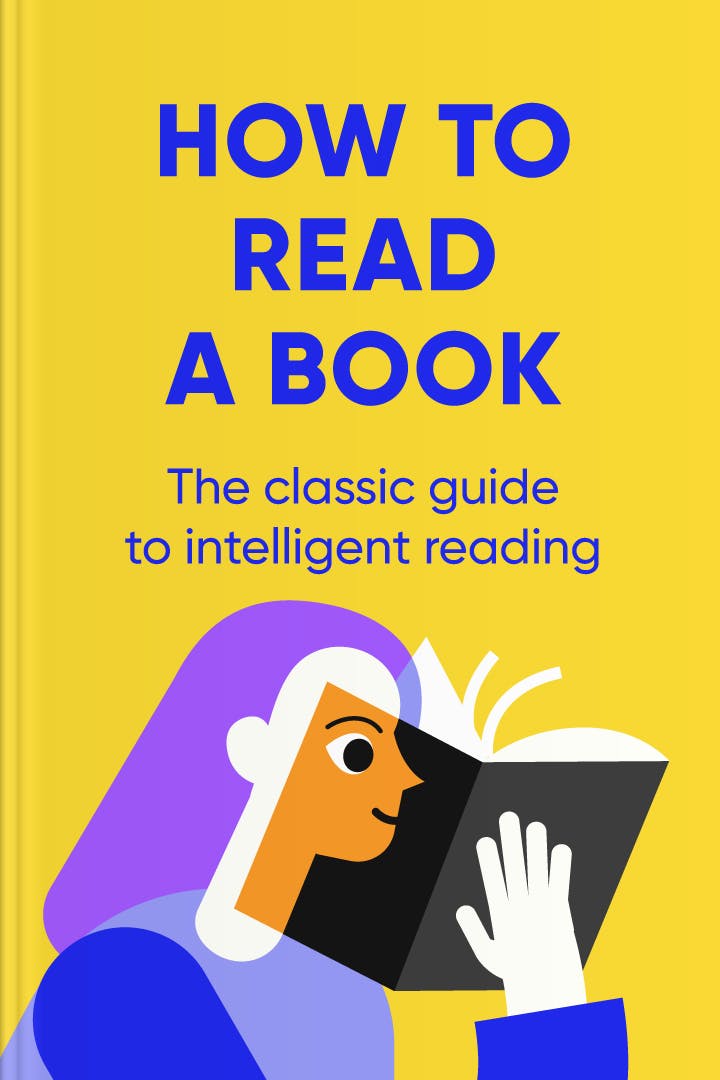 31
31How to Read a Book
by Mortimer J. Adler, Charles Van Doren
What is How to Read a Book about?
This book is a comprehensive guide that teaches readers how to effectively read and understand various types of literature. It provides valuable insights and techniques to enhance reading skills, such as active reading, interpretation, and critical analysis. With practical advice and examples, the authors aim to empower readers to become more thoughtful and engaged readers, enabling them to extract deeper meaning and knowledge from any book they encounter.
Who should read How to Read a Book
Students of all ages seeking to improve their reading skills.
Educators and teachers looking for effective reading strategies to teach.
Individuals interested in deepening their understanding of complex texts.
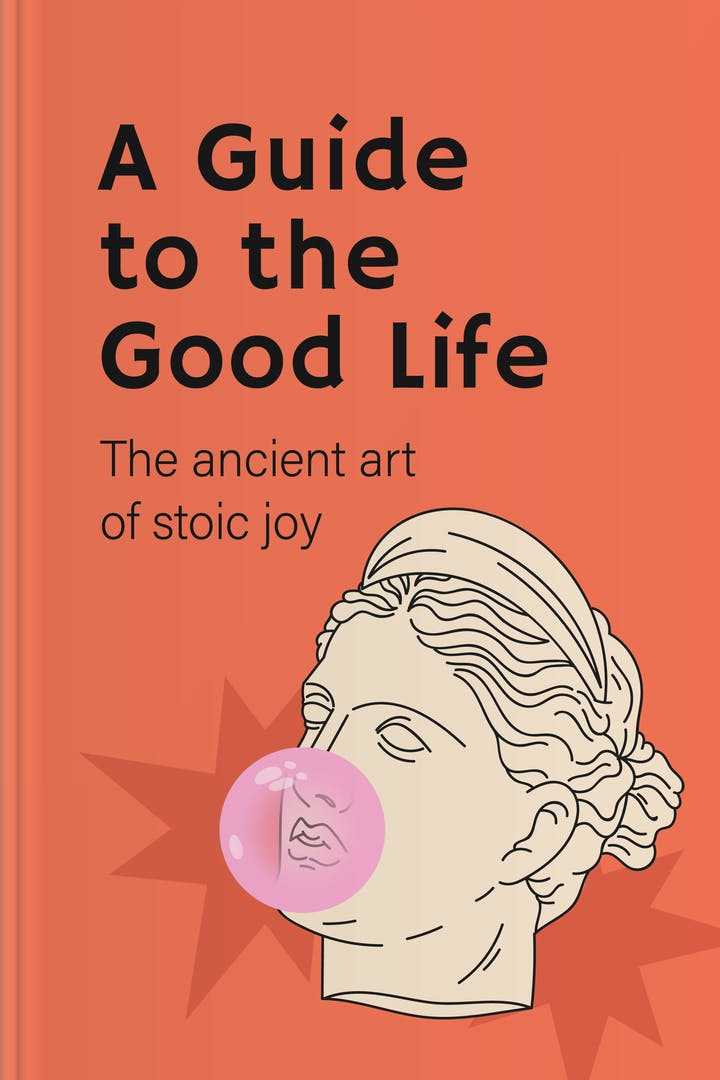 32
32A Guide to the Good Life
by William B. Irvine
What is A Guide to the Good Life about?
In this insightful guide, the author explores the ancient philosophy of Stoicism and its practical application in modern life. Drawing from the wisdom of Stoic thinkers, Irvine presents a step-by-step approach to finding joy and tranquility amidst the chaos of everyday existence. With practical exercises and thought-provoking insights, this book offers a roadmap to living a fulfilling life guided by reason, resilience, and inner peace.
Who should read A Guide to the Good Life
Individuals seeking practical wisdom and tranquility in their lives.
Philosophy enthusiasts interested in exploring Stoic principles and practices.
Anyone looking to cultivate resilience and find joy in adversity.
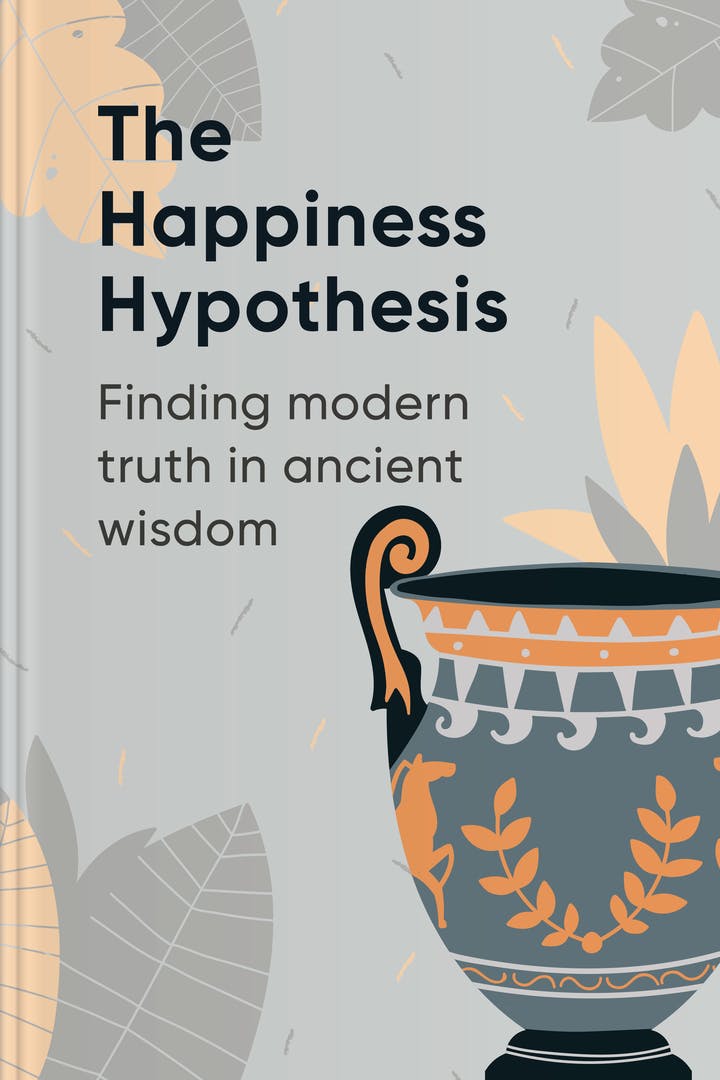 33
33The Happiness Hypothesis
by Jonathan Haidt
What is The Happiness Hypothesis about?
In this insightful book, the author delves into the age-old question of happiness, exploring the intersection of ancient wisdom and modern science. Drawing from various philosophical and religious traditions, Haidt examines the factors that contribute to our well-being, such as relationships, meaning, and personal growth. With a blend of research, personal anecdotes, and thought-provoking ideas, he offers a compelling exploration of how we can find true happiness in our modern lives.
Who should read The Happiness Hypothesis
Individuals seeking a deeper understanding of happiness and its sources.
Psychologists and researchers interested in the intersection of ancient wisdom and modern science.
Those looking for practical advice on achieving lasting happiness.
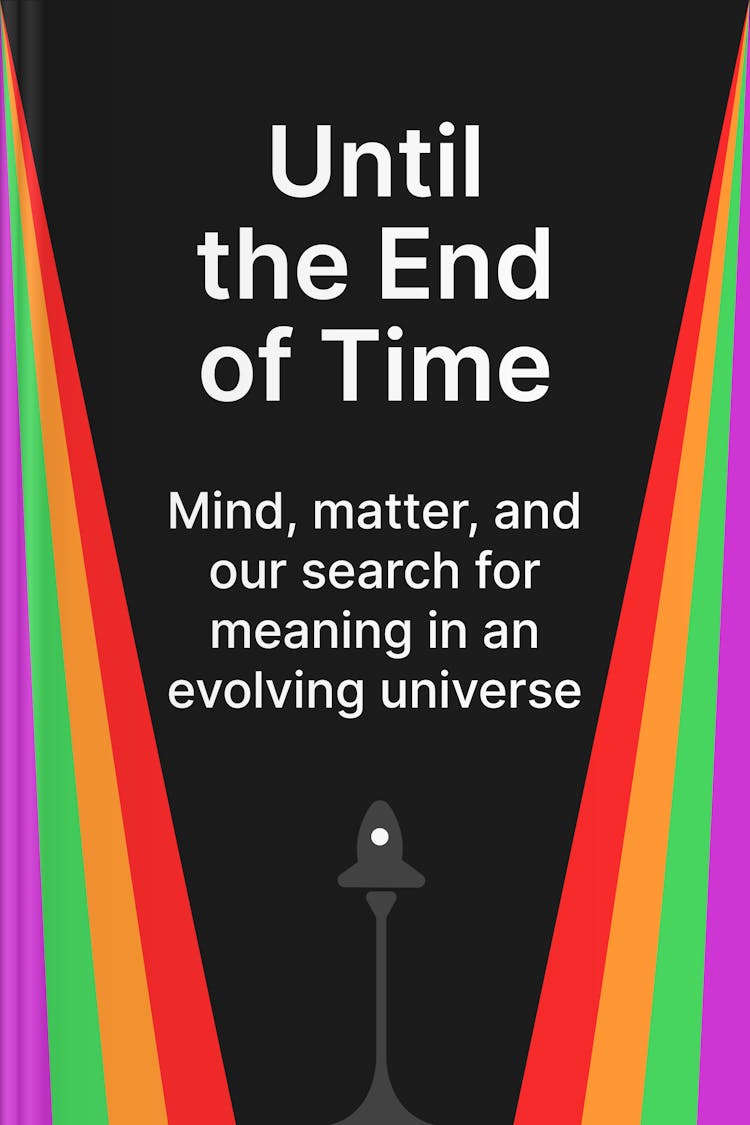 34
34Until The End of Time
by Brian Greene
What is Until The End of Time about?
In this thought-provoking exploration, a renowned physicist delves into the deepest questions of existence. Brian Greene takes readers on a captivating journey through the realms of science, philosophy, and spirituality, unraveling the mysteries of the universe and our place within it. From the origins of the cosmos to the complexities of consciousness, "Until The End of Time" offers a profound reflection on the nature of reality, the human experience, and the eternal quest for meaning.
Who should read Until The End of Time
Science enthusiasts seeking a deep exploration of the universe's mysteries.
Philosophers and thinkers pondering the nature of existence and purpose.
Curious individuals eager to understand the interconnectedness of mind and matter.
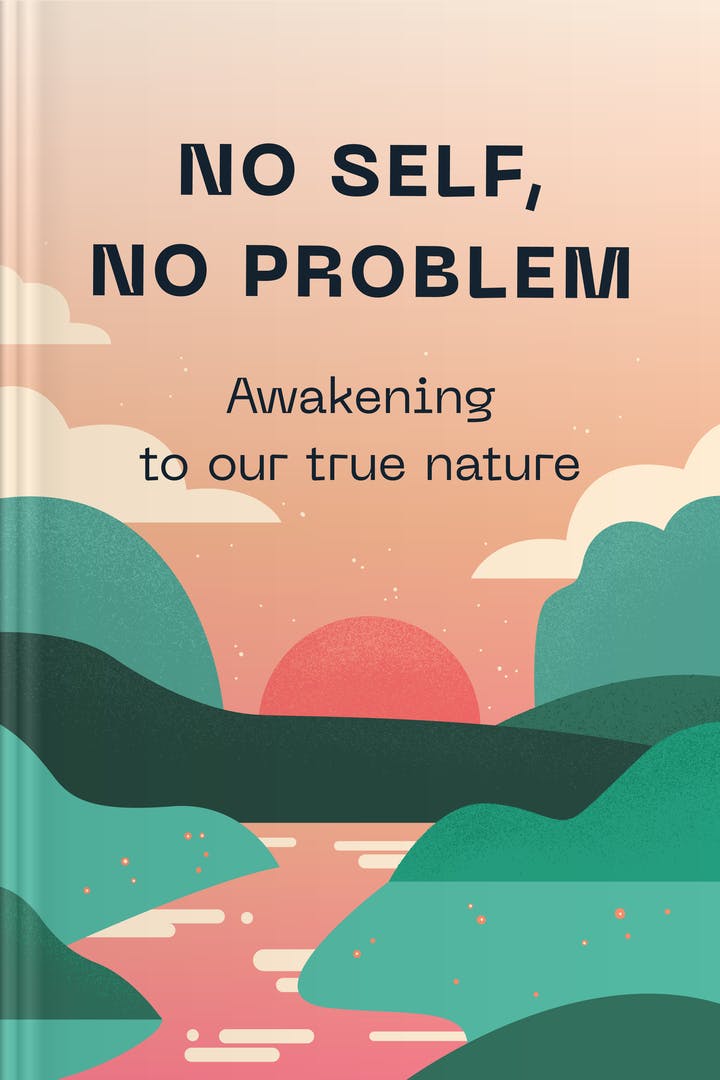 35
35No Self, No Problem
by Chris Niebauer, Ph.D.
What is No Self, No Problem about?
In this thought-provoking book, a renowned neuropsychologist explores the fascinating intersection between Buddhism and neuroscience. Through a blend of scientific research and Buddhist teachings, the author delves into the concept of self and its implications on our perception of reality. With clarity and depth, he reveals how these two seemingly disparate disciplines converge, offering profound insights into the nature of consciousness and the potential for personal transformation.
Who should read No Self, No Problem
Individuals interested in exploring the intersection of neuropsychology and Buddhism.
Psychology students seeking a unique perspective on consciousness and self.
Those curious about the latest scientific research on mindfulness and meditation.
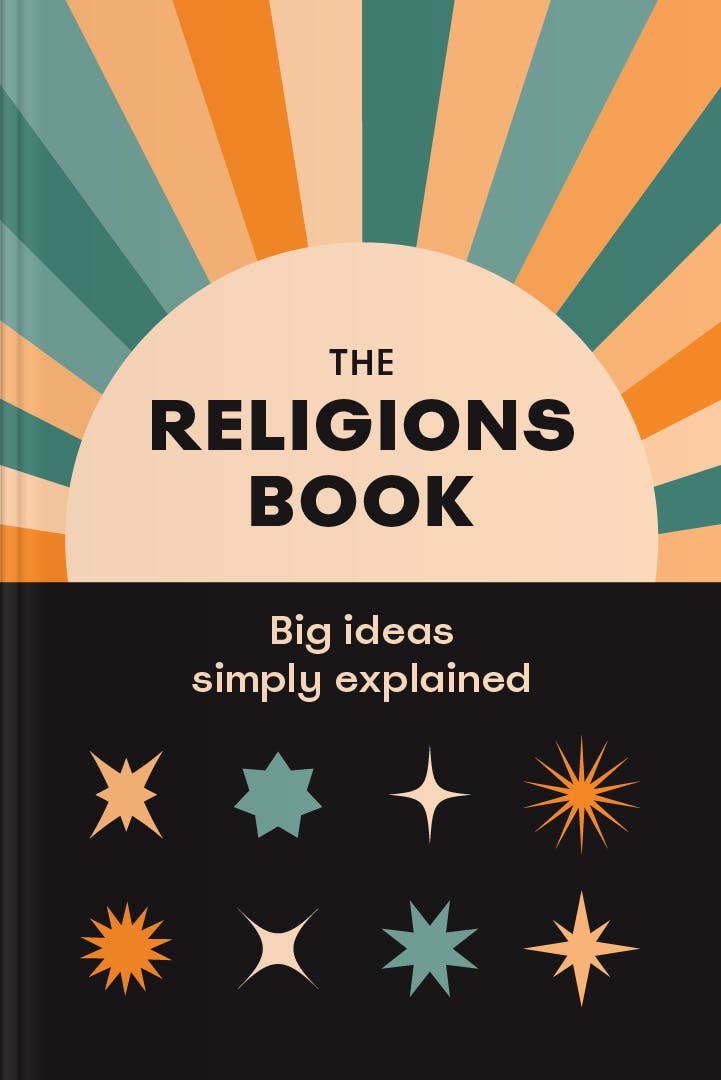 36
36The Religions Book
by DK & Neil Philip
What is The Religions Book about?
"The Religions Book: Big Ideas Simply Explained" is a comprehensive guide that explores the major religions of the world, their beliefs, practices, and historical significance. With clear and concise explanations, accompanied by stunning visuals, this book offers a fascinating journey through the diverse and complex world of religious traditions. From ancient rituals to modern interpretations, it provides a valuable resource for anyone seeking to understand the fundamental concepts and philosophies that shape our global religious landscape.
Who should read The Religions Book
Students and scholars seeking a comprehensive overview of world religions.
Individuals interested in exploring the fundamental concepts of different faiths.
Readers looking for a concise and accessible introduction to religious beliefs.
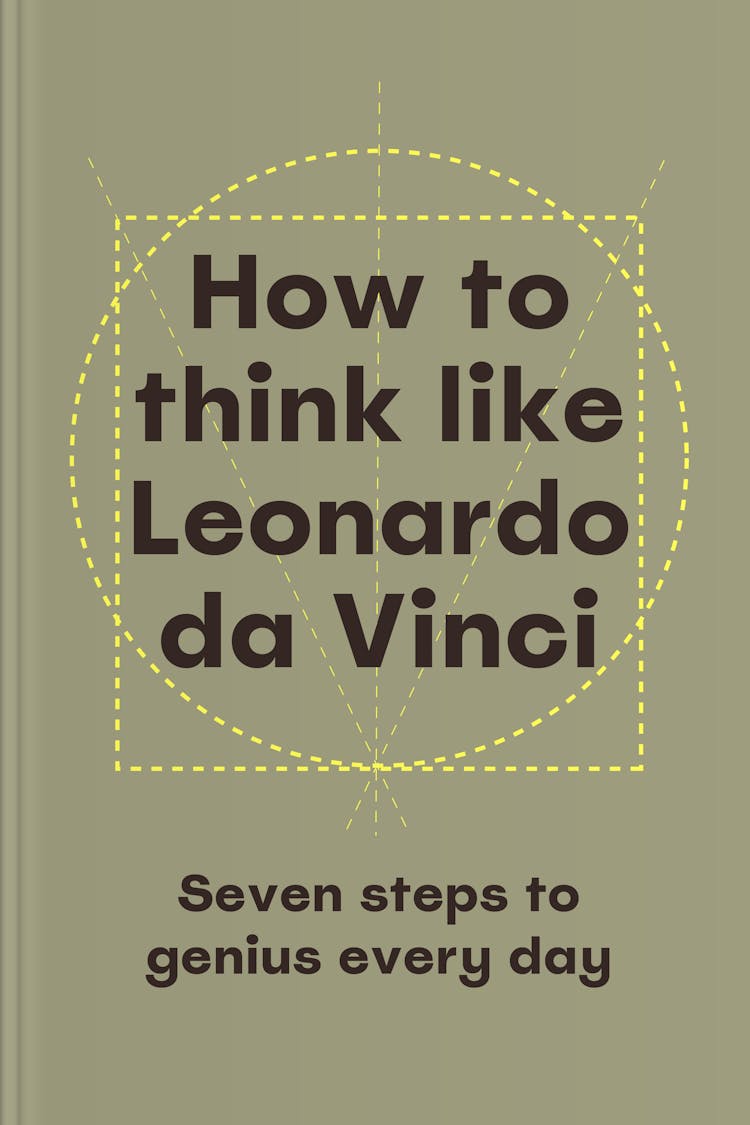 37
37How to Think Like Leonardo da Vinci
by Michael J. Gelb
What is How to Think Like Leonardo da Vinci about?
In this insightful guide, the author explores the mind of the legendary artist and inventor, Leonardo da Vinci, revealing seven practical steps to cultivate genius in our daily lives. Drawing from da Vinci's notebooks, Gelb presents exercises and techniques to enhance creativity, sharpen thinking skills, and foster a holistic approach to problem-solving. This book offers a captivating journey into the mind of a genius, inspiring readers to unlock their own potential and think like da Vinci.
Who should read How to Think Like Leonardo da Vinci
Aspiring artists and creatives seeking to unlock their potential.
Professionals looking to enhance their problem-solving and critical thinking skills.
History enthusiasts interested in understanding the mind of Leonardo da Vinci.
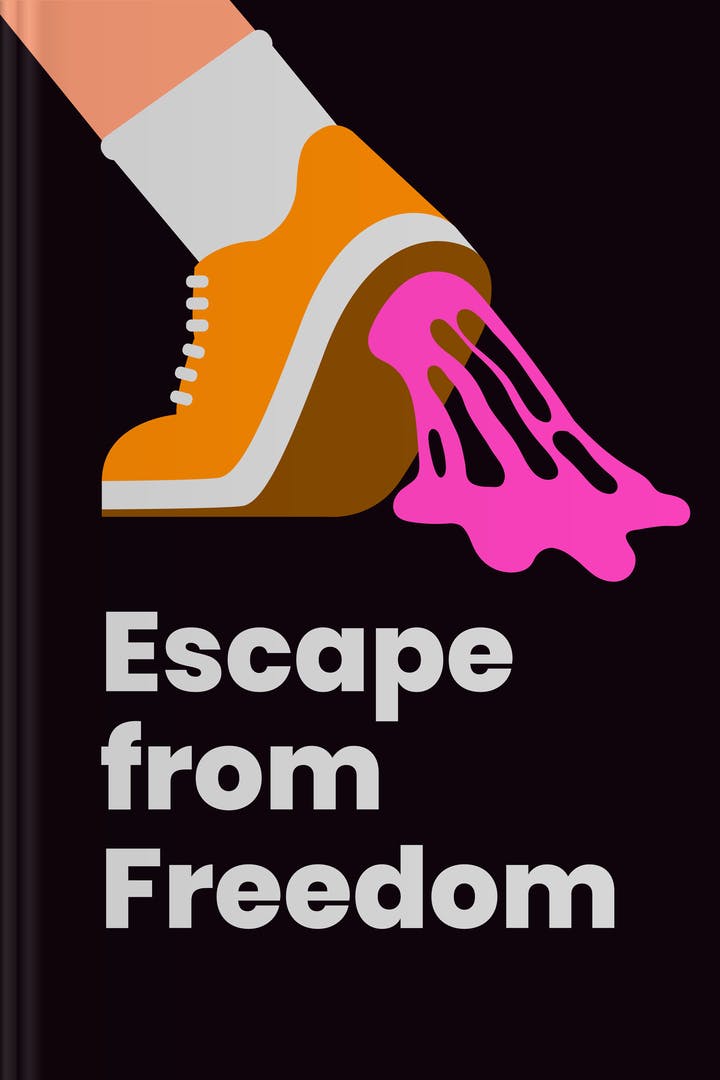 38
38Escape From Freedom
by Erich Fromm
What is Escape From Freedom about?
"Escape From Freedom" explores the psychological and social factors that drive individuals to seek escape from the burdens of freedom. Erich Fromm delves into the human desire for security and conformity, analyzing the impact of societal structures on personal identity and the consequences of relinquishing individual autonomy. Fromm's thought-provoking analysis sheds light on the complexities of human nature and the struggle between the yearning for freedom and the allure of conformity.
Who should read Escape From Freedom
Individuals seeking to understand the psychological roots of authoritarianism.
Psychologists and social scientists interested in studying human behavior.
Those interested in exploring the impact of societal pressures on personal freedom.
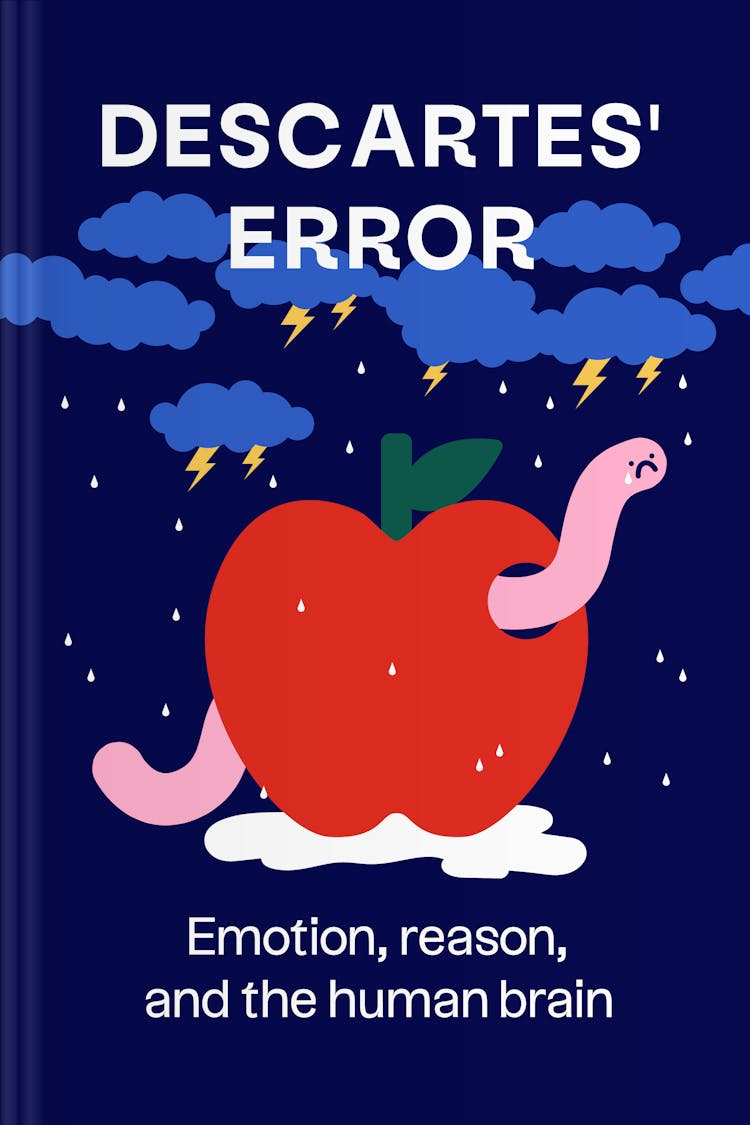 39
39Descartes' Error
by Antonio Damasio
What is Descartes' Error about?
In this thought-provoking book, the author delves into the intricate relationship between emotions, reason, and the human brain. Through captivating examples and scientific research, Damasio challenges the traditional view that emotions hinder rationality, arguing instead that they are essential for decision-making and social behavior. By exploring the case of a patient with a damaged brain, he reveals the profound impact of emotions on our everyday lives, ultimately reshaping our understanding of the mind and consciousness.
Who should read Descartes' Error
Neuroscientists and psychologists interested in the relationship between emotion and reason.
Philosophy enthusiasts seeking to understand the impact of emotions on human cognition.
Individuals curious about the role of emotions in decision-making.
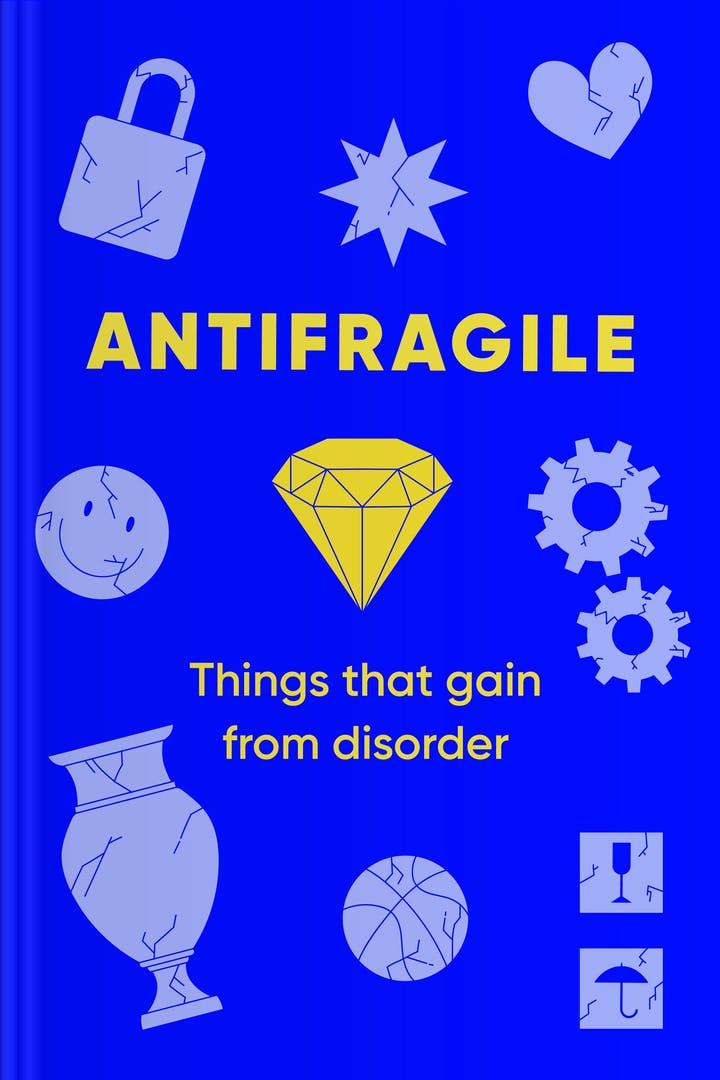 40
40Antifragile
by Nassim Nicholas Taleb
What is Antifragile about?
In this thought-provoking book, the author explores the concept of antifragility, which refers to systems that not only withstand shocks and disorder but actually thrive from them. Drawing on examples from various fields, Nassim Nicholas Taleb challenges conventional wisdom and argues for embracing uncertainty and randomness as essential components of life. With his unique blend of philosophy, economics, and practical insights, he offers a compelling perspective on how to navigate a world filled with unpredictability.
Who should read Antifragile
Entrepreneurs seeking to thrive in unpredictable and chaotic markets.
Risk managers and decision-makers navigating uncertain and volatile environments.
Individuals interested in understanding the benefits of embracing uncertainty.
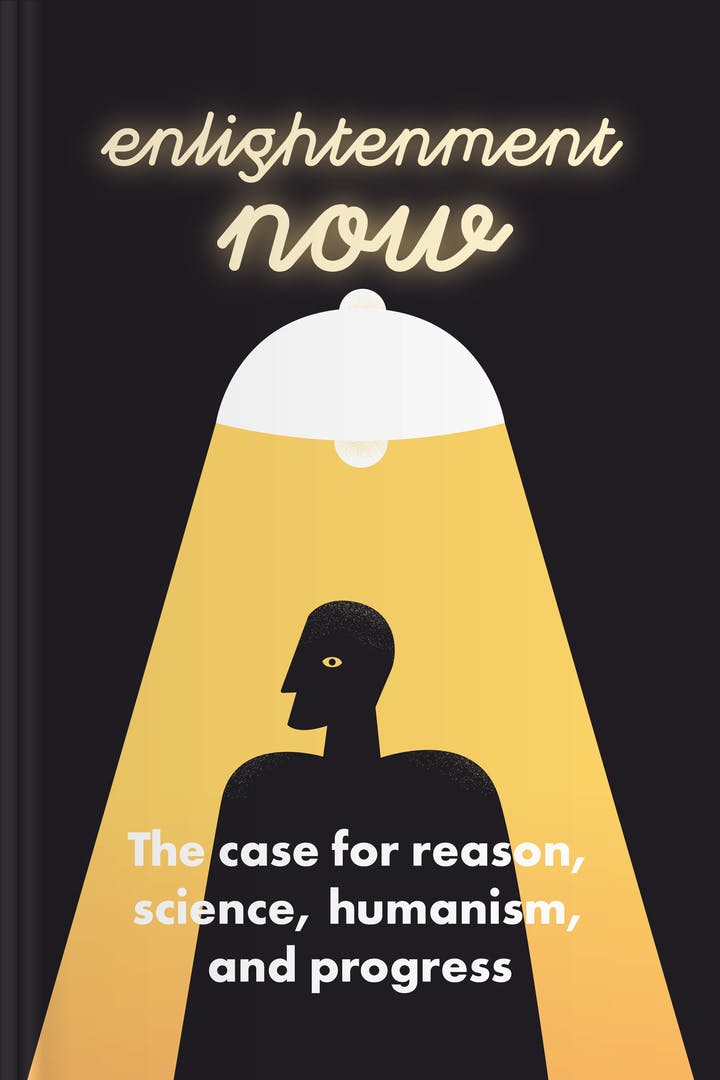 41
41Enlightenment Now
by Steven Pinker
What is Enlightenment Now about?
In this thought-provoking book, the author explores the power of reason, science, humanism, and progress in shaping our world. Through a comprehensive analysis of data and historical trends, Pinker argues that despite the prevailing pessimism, humanity has made remarkable advancements in various aspects of life. From health and education to peace and prosperity, he presents a compelling case for embracing enlightenment values to continue our journey towards a better future.
Who should read Enlightenment Now
Individuals seeking a comprehensive understanding of the positive impact of reason
science
humanism
and progress on society.
Scholars and academics interested in exploring the interconnectedness of reason
science
humanism
and progress in shaping our world.
Those looking for evidence-based arguments to counter pessimism and embrace optimism about the future.
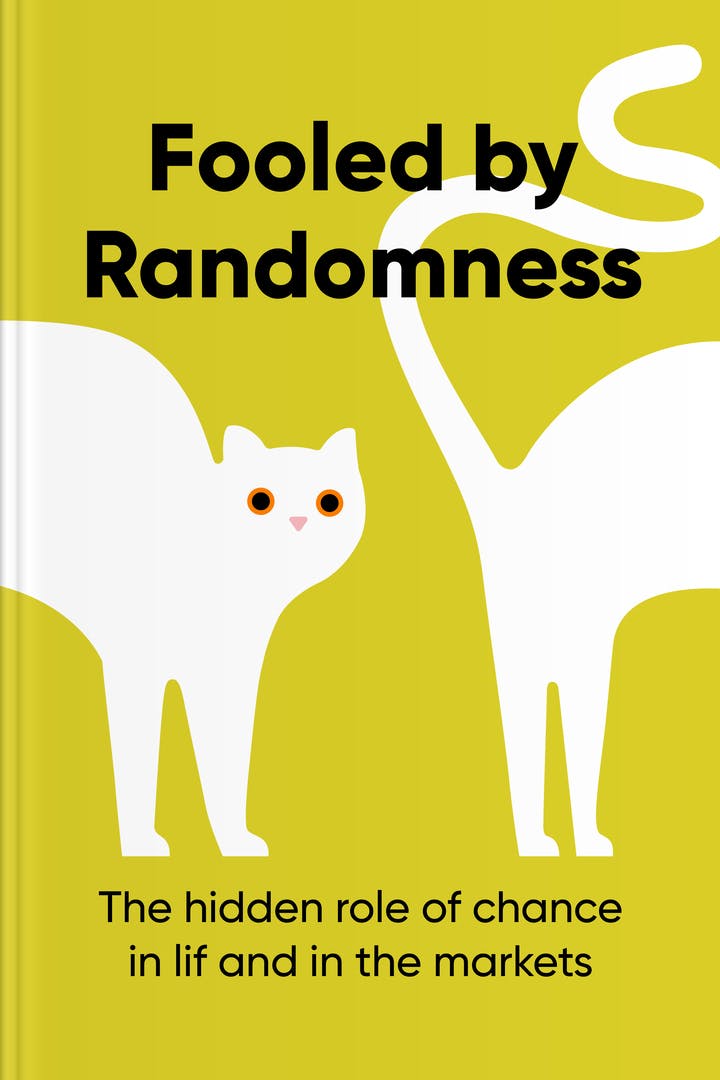 42
42Fooled by Randomness
by Nassim Nicholas Taleb
What is Fooled by Randomness about?
In this thought-provoking book, the author explores the often overlooked influence of randomness in our lives and financial markets. Nassim Nicholas Taleb challenges our tendency to attribute success solely to skill and failure to incompetence, highlighting the hidden role of chance. With captivating anecdotes and insightful analysis, he urges readers to embrace uncertainty and develop a deeper understanding of the unpredictable forces that shape our world.
Who should read Fooled by Randomness
Investors and traders seeking to understand the impact of randomness.
Individuals interested in exploring the hidden influence of chance.
Anyone looking to gain insights into life's unpredictable nature.
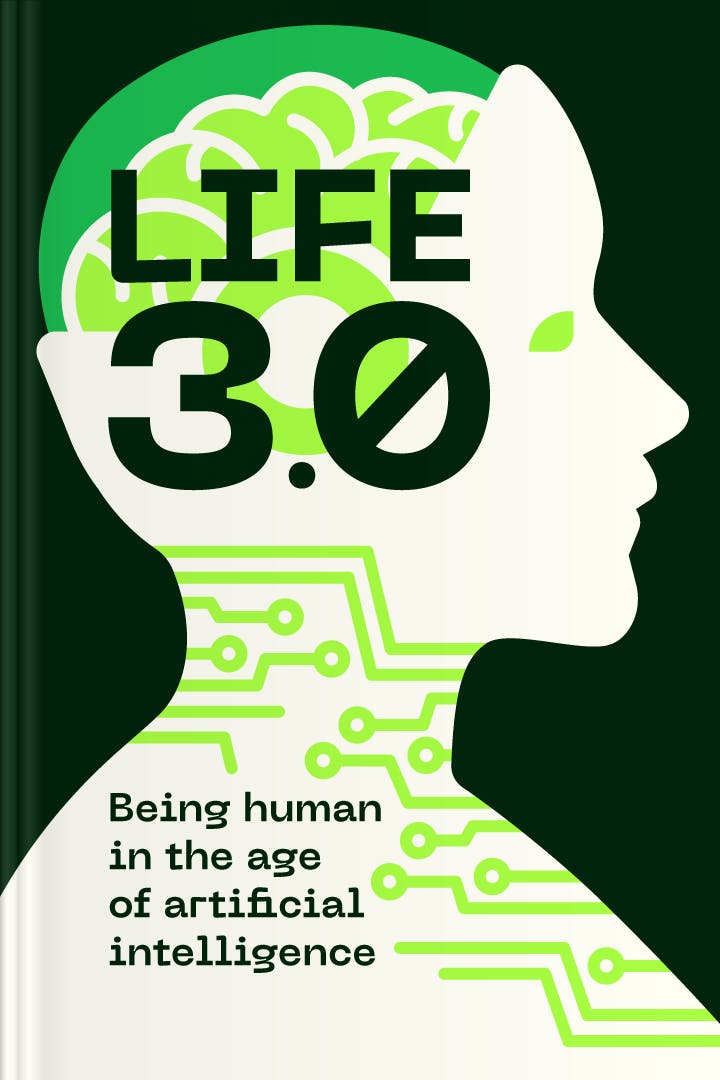 43
43Life 3.0
by Max Tegmark
What is Life 3.0 about?
In this thought-provoking book, Max Tegmark explores the profound impact of artificial intelligence (AI) on humanity. Tegmark delves into the potential benefits and risks of AI, discussing its implications on work, warfare, and even our understanding of consciousness. With a blend of scientific expertise and philosophical insights, "Life 3.0" challenges readers to contemplate the future of AI and its role in shaping our existence as humans in this rapidly advancing technological era.
Who should read Life 3.0
Technology enthusiasts seeking to understand the potential of artificial intelligence.
Philosophers and ethicists exploring the implications of AI advancements.
General readers curious about the impact of AI on humanity.
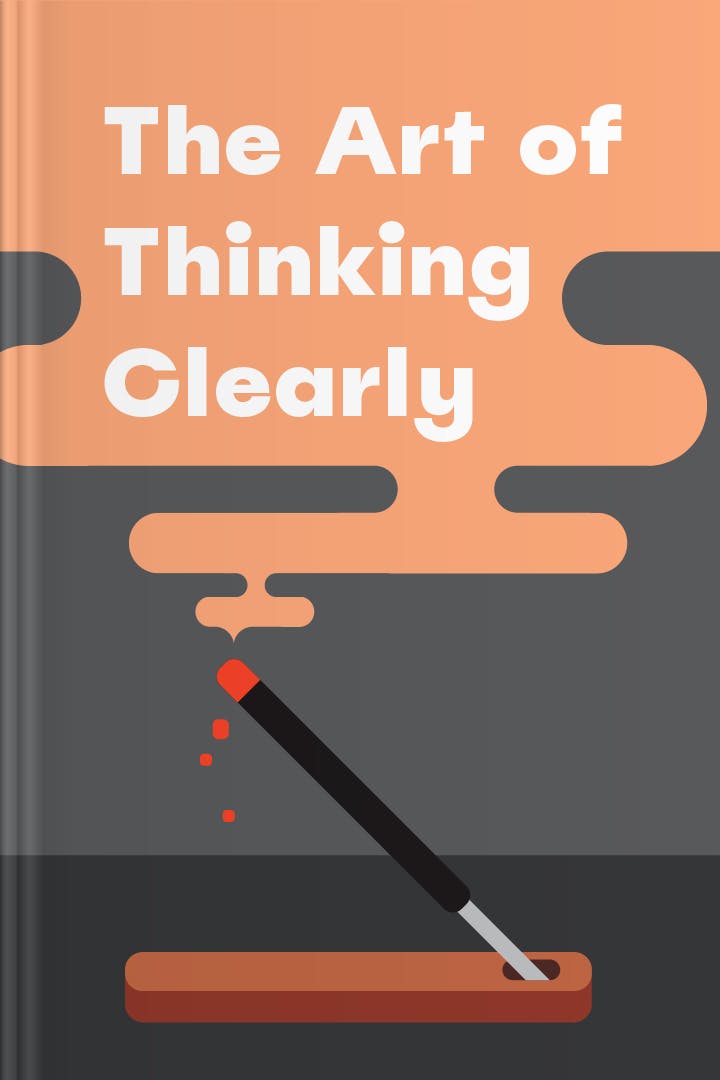 44
44The Art of Thinking Clearly
by Rolf Dobelli
What is The Art of Thinking Clearly about?
"The Art of Thinking Clearly" is a thought-provoking book that explores the common cognitive biases and logical fallacies that often cloud our decision-making process. Written by an acclaimed author, this book offers practical insights and strategies to help readers identify and overcome these mental traps. With a blend of psychology, philosophy, and real-life examples, it provides a valuable guide to improving our critical thinking skills and making better choices in various aspects of life.
Who should read The Art of Thinking Clearly
Individuals seeking to improve their decision-making skills and critical thinking abilities.
Business professionals looking to enhance their problem-solving strategies and avoid cognitive biases.
Anyone interested in understanding common thinking errors and improving their judgment.
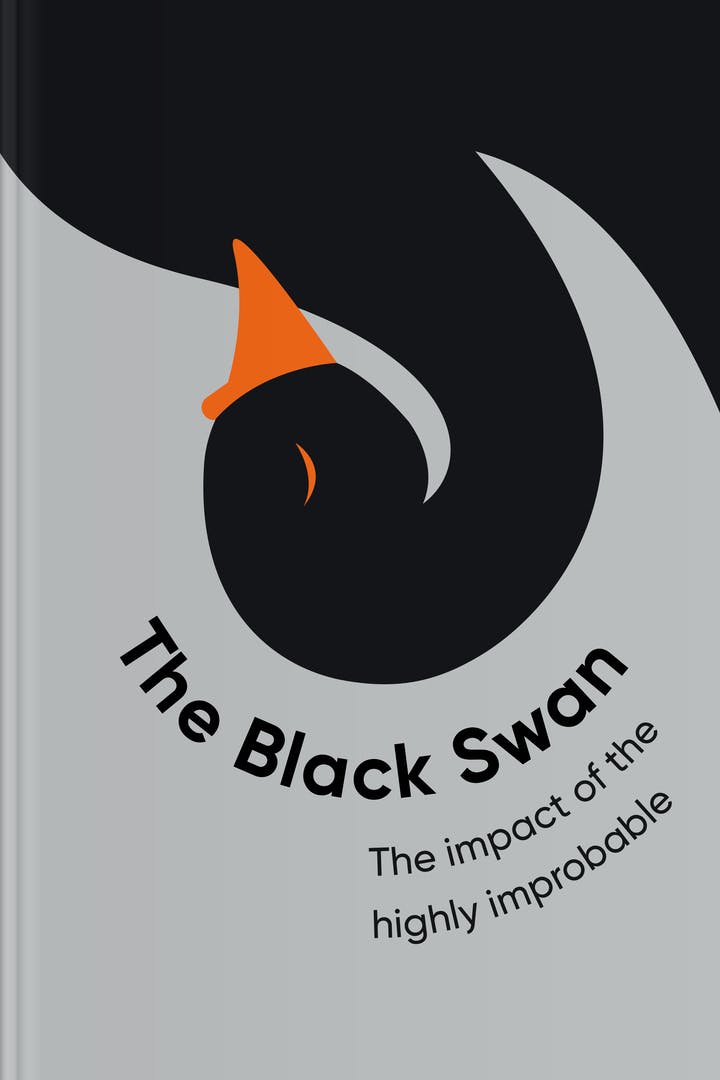 45
45The Black Swan
by Nassim Nicholas Taleb
What is The Black Swan about?
"The Black Swan" explores the profound impact of unpredictable and rare events on our lives, economies, and societies. Nassim Nicholas Taleb delves into the concept of black swans, which are unforeseen events with extreme consequences. Through captivating anecdotes and thought-provoking analysis, Taleb challenges our reliance on traditional forecasting methods and highlights the need for a more robust understanding of uncertainty. This book serves as a wake-up call, urging readers to embrace uncertainty and adapt to a world filled with unpredictable events.
Who should read The Black Swan
Investors and financial professionals seeking insights into unpredictable events.
Risk managers and decision-makers interested in understanding rare occurrences.
Individuals curious about the impact of unpredictable events on society.
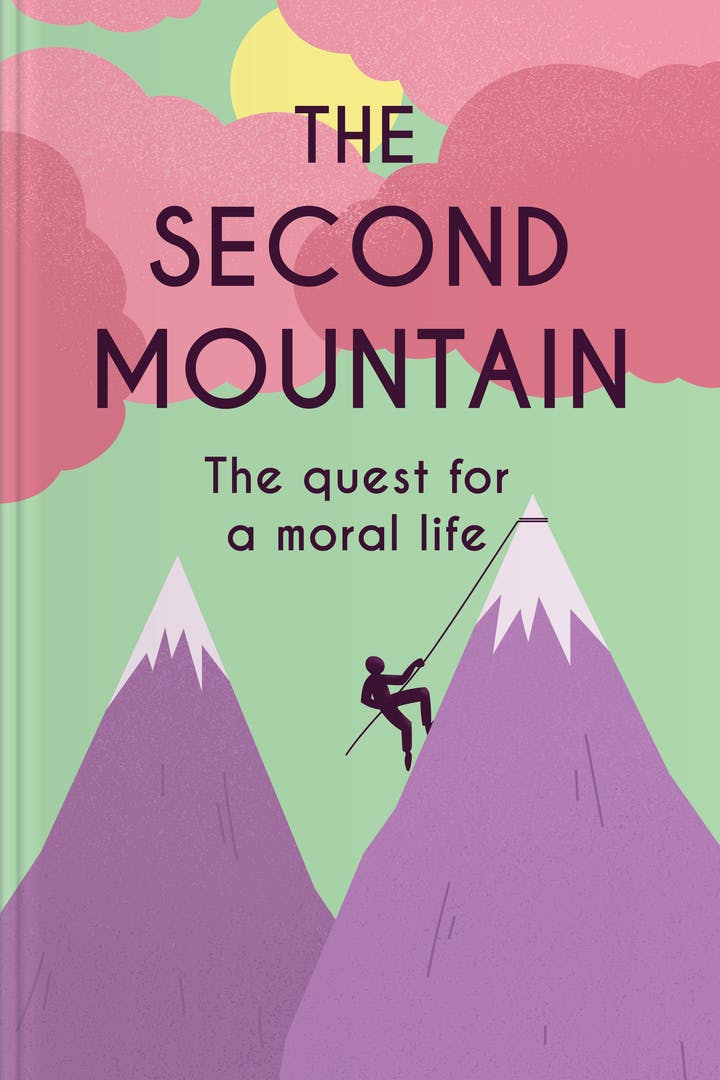 46
46The Second Mountain
by David Brooks
What is The Second Mountain about?
In "The Second Mountain: The Quest for a Moral Life," the author delves into the search for a meaningful existence beyond personal success and happiness. David Brooks explores the concept of the second mountain, representing a life dedicated to serving others and finding deeper connections. Through personal anecdotes and philosophical insights, he guides readers on a transformative journey towards a more purposeful and fulfilling life.
Who should read The Second Mountain
Individuals seeking a deeper sense of purpose and fulfillment.
Those interested in exploring the importance of community and relationships.
Readers looking for guidance on living a more meaningful life.
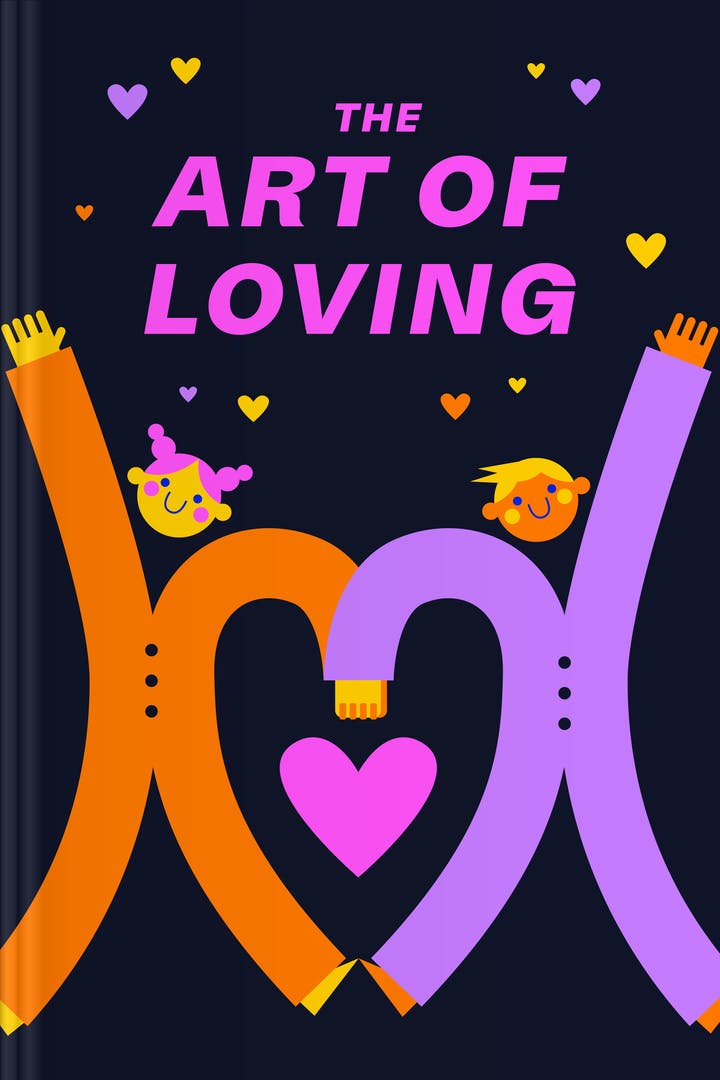 47
47The Art of Loving
by Erich Fromm
What is The Art of Loving about?
"The Art of Loving" explores the complexities of human relationships and delves into the true meaning of love. Erich Fromm, a renowned psychologist, challenges conventional notions of love and offers a profound analysis of its various forms. Fromm emphasizes the importance of self-love, understanding, and compassion in fostering healthy connections with others. This insightful book provides readers with valuable insights and practical guidance on how to cultivate and nurture love in all aspects of life.
Who should read The Art of Loving
Individuals seeking to understand the complexities of love and relationships.
Psychologists and therapists interested in exploring the psychology of love.
Anyone looking to cultivate a deeper understanding of human connection.
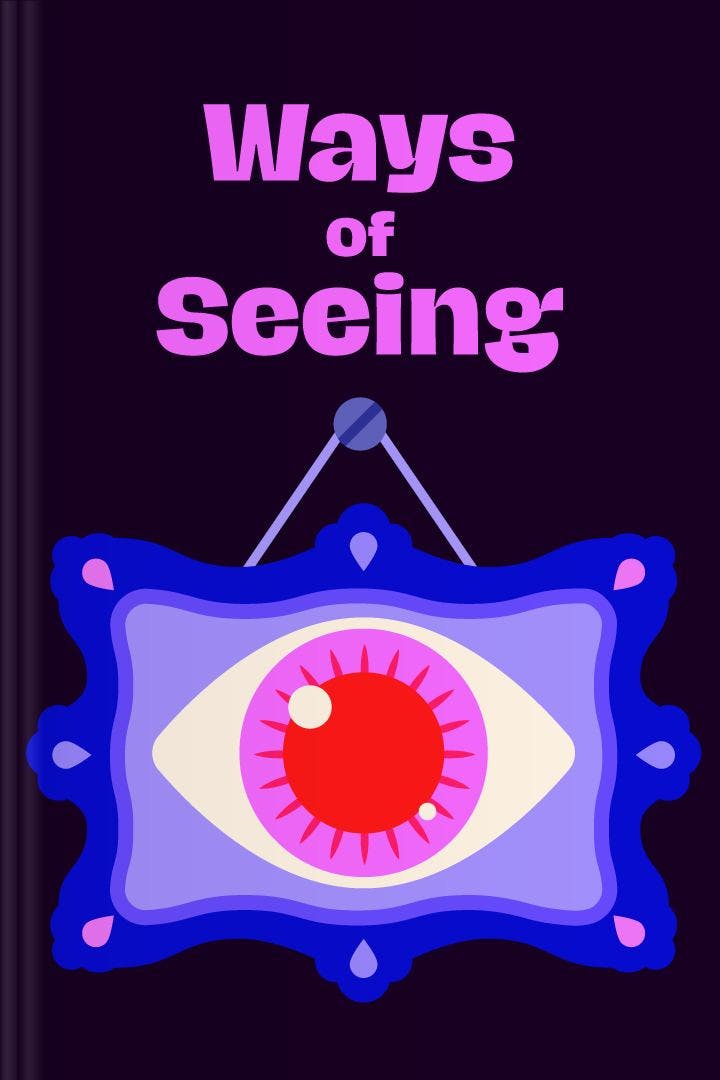 48
48Ways of Seeing
by John Berger
What is Ways of Seeing about?
"Ways of Seeing" by John Berger is a thought-provoking exploration of how we perceive and interpret visual images in our society. Through a combination of essays and images, Berger challenges traditional notions of art, advertising, and the male gaze, urging readers to question the power dynamics and hidden meanings behind what we see. This book offers a fresh perspective on the ways in which visual culture shapes our understanding of the world around us.
Who should read Ways of Seeing
Art enthusiasts seeking a fresh perspective on visual culture.
Students studying art history or visual communication.
Individuals interested in exploring the social and political aspects of art.
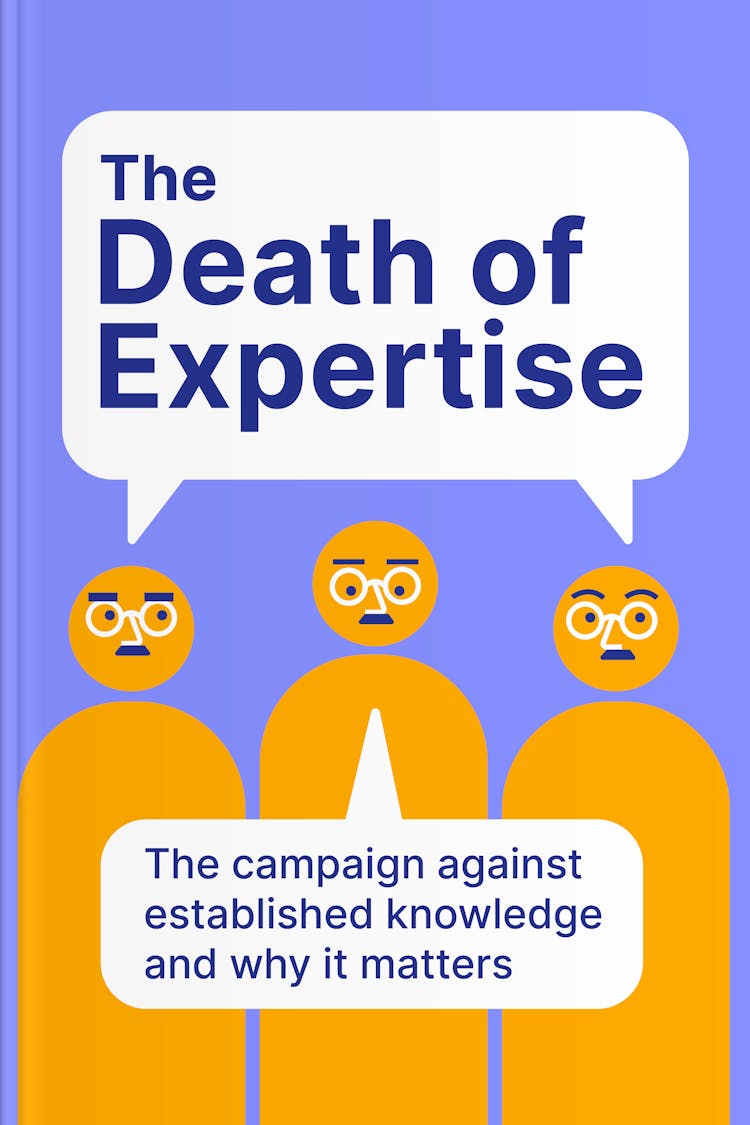 49
49The Death of Expertise
by Tom Nichols, Ph.D.
What is The Death of Expertise about?
In this thought-provoking book, a renowned scholar delves into the alarming rise of anti-intellectualism and the erosion of expertise in modern society. With compelling arguments and extensive research, the author explores the consequences of dismissing established knowledge, highlighting the dangers it poses to democracy, public policy, and even our personal lives. A wake-up call to value and respect expertise, this book urges readers to confront the perils of a society that disregards the wisdom of experts.
Who should read The Death of Expertise
Educators
researchers
and scholars seeking to understand the erosion of expertise.
Politicians and policymakers grappling with the challenges of anti-intellectualism.
General readers interested in the consequences of dismissing expert opinions.
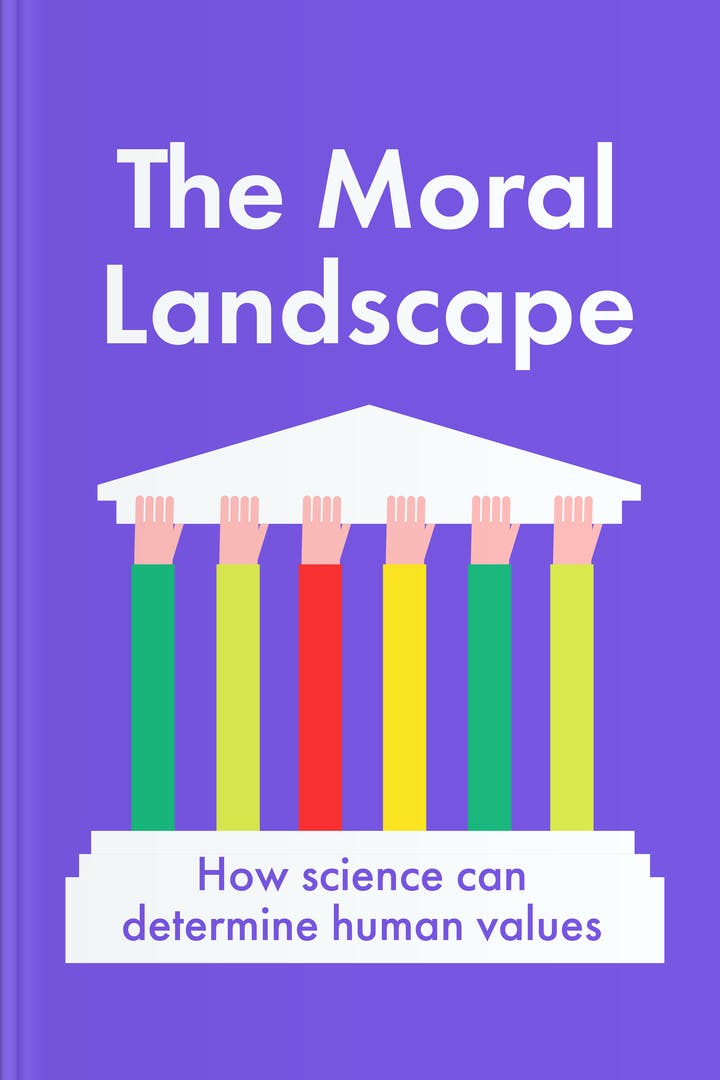 50
50The Moral Landscape
by Sam Harris
What is The Moral Landscape about?
In this thought-provoking book, the author explores the intersection of science and morality, challenging traditional beliefs about the separation of facts and values. Sam Harris argues that science can provide objective insights into human values, offering a framework to guide ethical decision-making. With a blend of neuroscience, philosophy, and psychology, Harris presents a compelling case for a scientific approach to understanding and shaping our moral landscape.
Who should read The Moral Landscape
Philosophers and ethicists seeking a scientific perspective on human values.
Science enthusiasts interested in exploring the intersection of morality and research.
Individuals questioning the traditional foundations of moral reasoning.
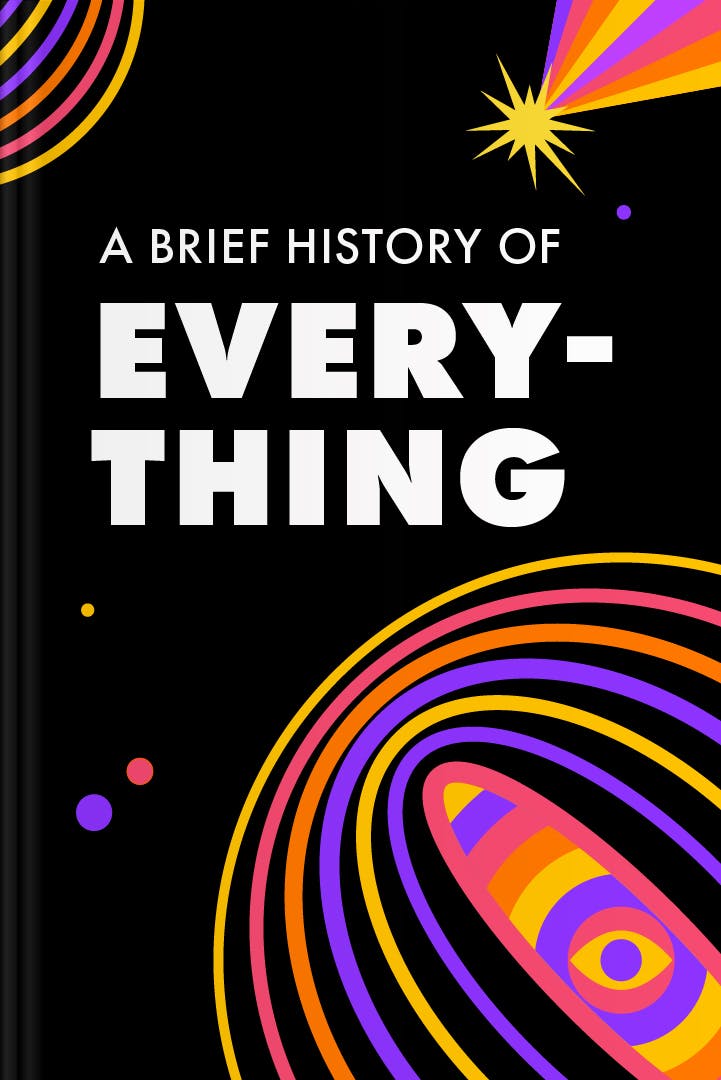 51
51A Brief History of Everything
by Ken Wilber
What is A Brief History of Everything about?
"A Brief History of Everything" is a comprehensive exploration of the evolution of human consciousness and the interconnectedness of all aspects of existence. Ken Wilber delves into various disciplines, including science, philosophy, psychology, and spirituality, to present a unified framework that encompasses the physical, mental, and spiritual dimensions of reality. This thought-provoking book offers a profound understanding of the universe, our place in it, and the potential for personal and collective transformation.
Who should read A Brief History of Everything
Philosophy enthusiasts seeking a comprehensive understanding of the universe.
Students of spirituality and consciousness exploring the interconnectedness of existence.
Individuals curious about the evolution of human thought and culture.
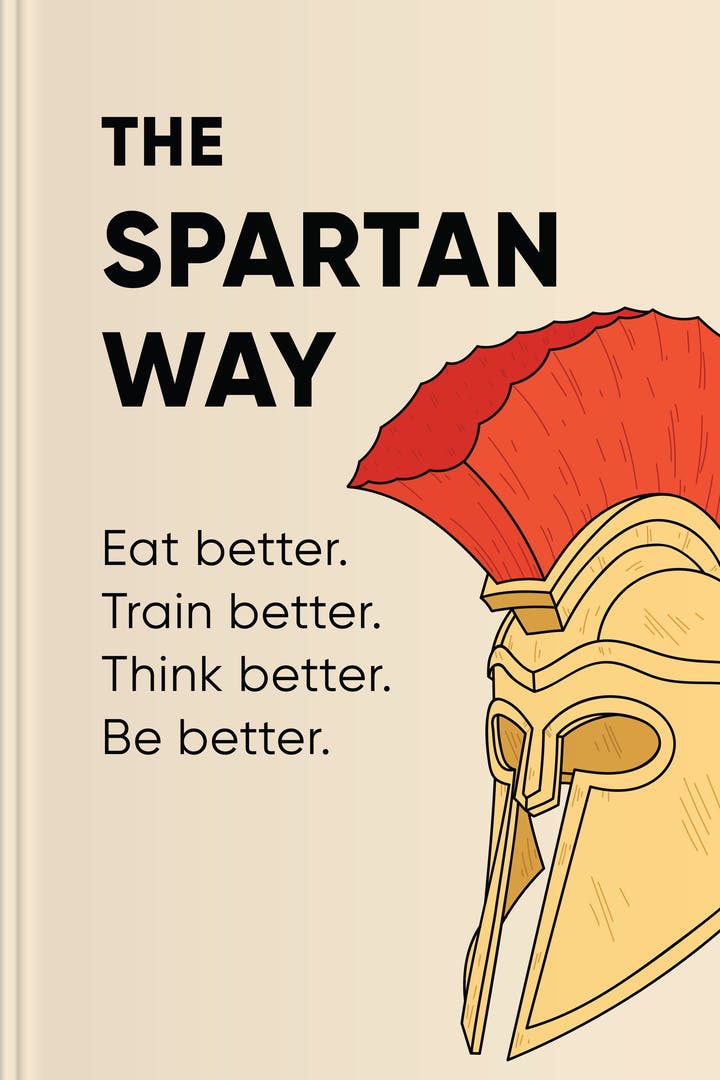 52
52The Spartan Way
by Brett and Kate Mckay
What is The Spartan Way about?
"The Spartan Way" explores the timeless wisdom and principles of ancient Spartan warriors, offering valuable lessons for modern men. Drawing from historical accounts and philosophical teachings, authors Brett and Kate McKay delve into the Spartan way of life, emphasizing discipline, resilience, and self-mastery. This thought-provoking book inspires readers to adopt a Spartan mindset, empowering them to overcome challenges, cultivate inner strength, and lead a purposeful life in today's world.
Who should read The Spartan Way
Men seeking inspiration and guidance from ancient warrior principles.
History enthusiasts interested in the Spartan way of life.
Individuals looking to adopt a disciplined and resilient mindset.
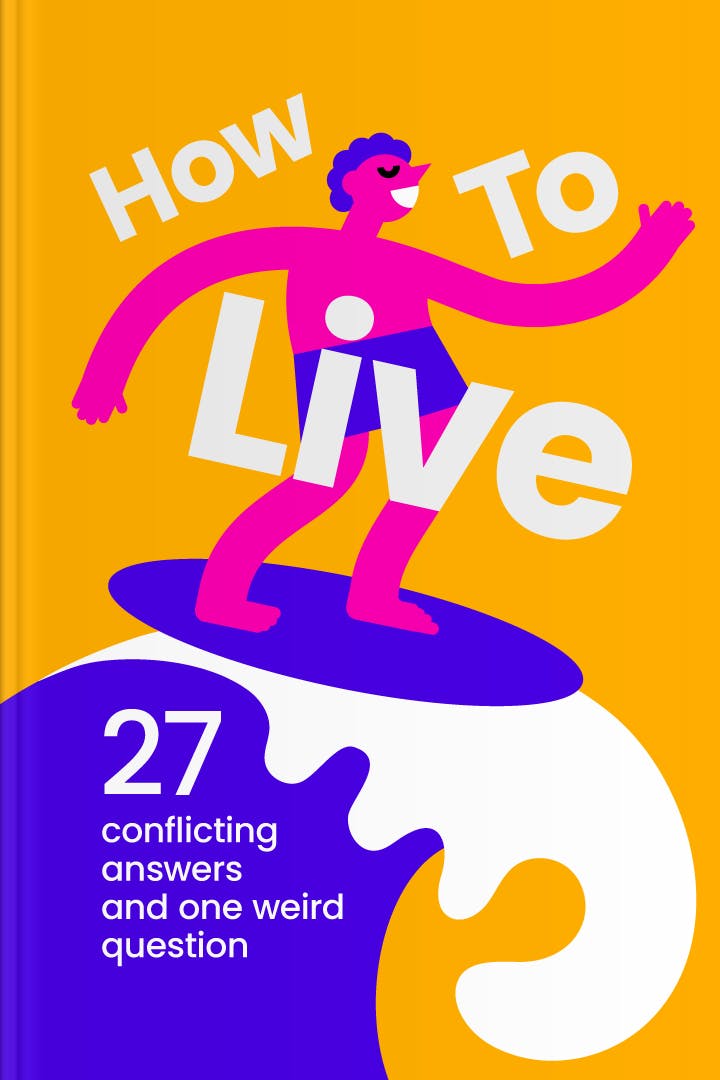 53
53How to Live
by Derek Sivers
What is How to Live about?
In this thought-provoking book, Derek Sivers explores the complex question of how to live a fulfilling life by presenting 27 conflicting answers from various perspectives. Through personal anecdotes, philosophical insights, and practical advice, Sivers challenges conventional wisdom and encourages readers to question their own beliefs. Ultimately, he arrives at a surprising and unconventional conclusion that will leave readers pondering the true meaning of a well-lived life.
Who should read How to Live
Individuals seeking diverse perspectives on the meaning of life.
Philosophical thinkers looking for unconventional insights on existence.
Those interested in exploring contradictory viewpoints on living purposefully.
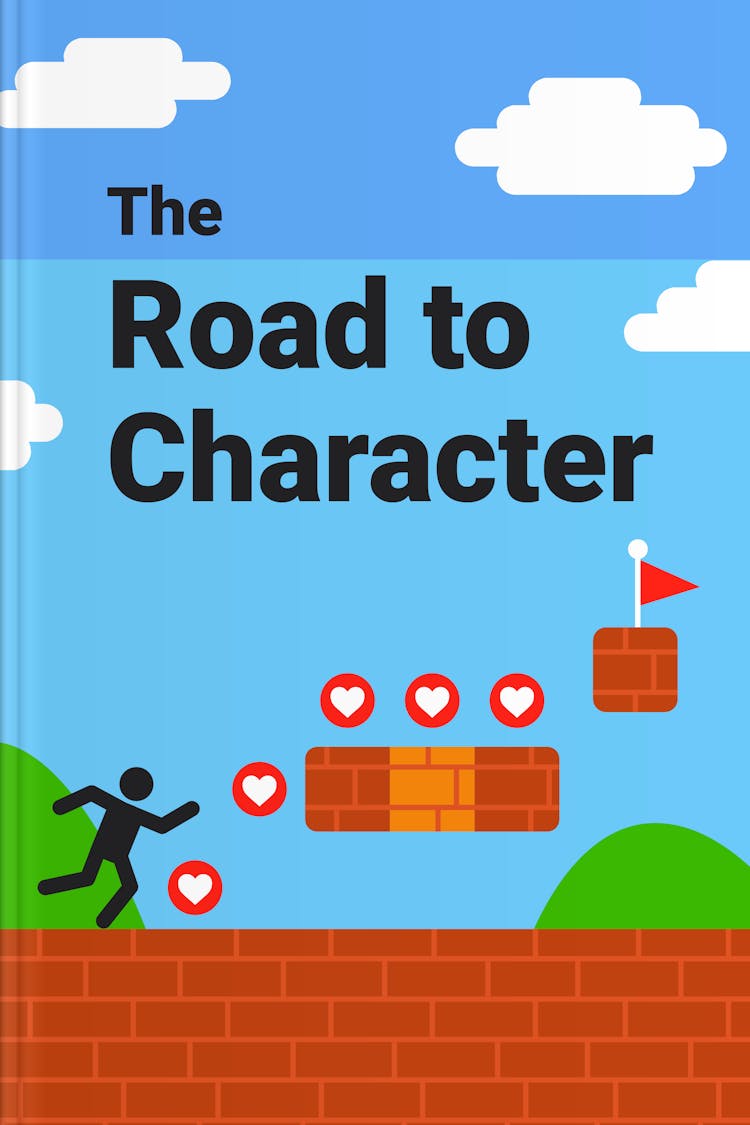 54
54The Road to Character
by David Brooks
What is The Road to Character about?
"The Road to Character" explores the concept of character development and the pursuit of moral virtues in a society that often prioritizes external success. Drawing on the lives of various historical figures, David Brooks delves into the importance of humility, selflessness, and integrity in shaping one's character. Through thought-provoking anecdotes and insightful analysis, the book challenges readers to reflect on their own values and embark on a journey towards a more meaningful and fulfilling life.
Who should read The Road to Character
Individuals seeking personal growth and moral development.
Those interested in exploring the complexities of human character.
Readers looking for insights on building resilience and finding purpose.
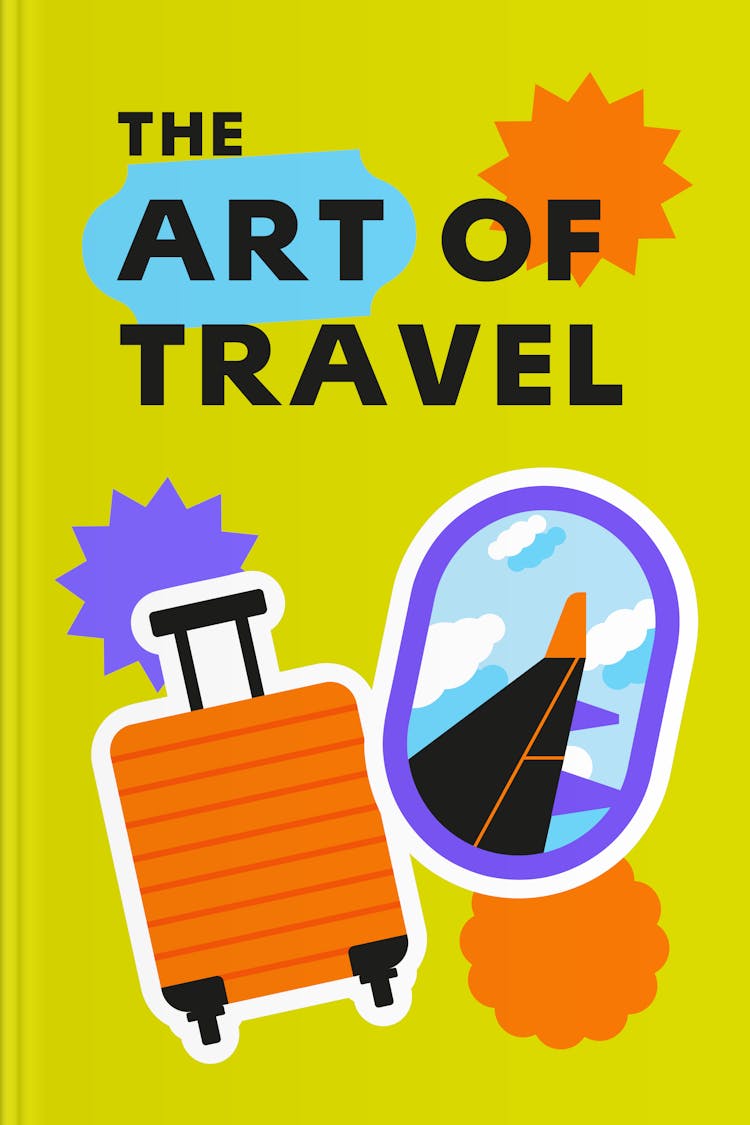 55
55The Art of Travel
by Alain De Botton
What is The Art of Travel about?
"The Art of Travel" explores the intricacies of our desire to travel and the profound impact it has on our lives. Alain De Botton delves into the philosophical and psychological aspects of travel, offering insightful reflections on the anticipation, experiences, and disappointments that come with exploring new places. Through a blend of personal anecdotes, historical references, and artistic inspirations, De Botton invites readers to reconsider the way they approach and appreciate their journeys.
Who should read The Art of Travel
Travel enthusiasts seeking philosophical insights into the transformative power of journeys.
Individuals looking for a fresh perspective on the meaning and purpose of travel.
Those interested in exploring the intersection of art
philosophy
and travel.
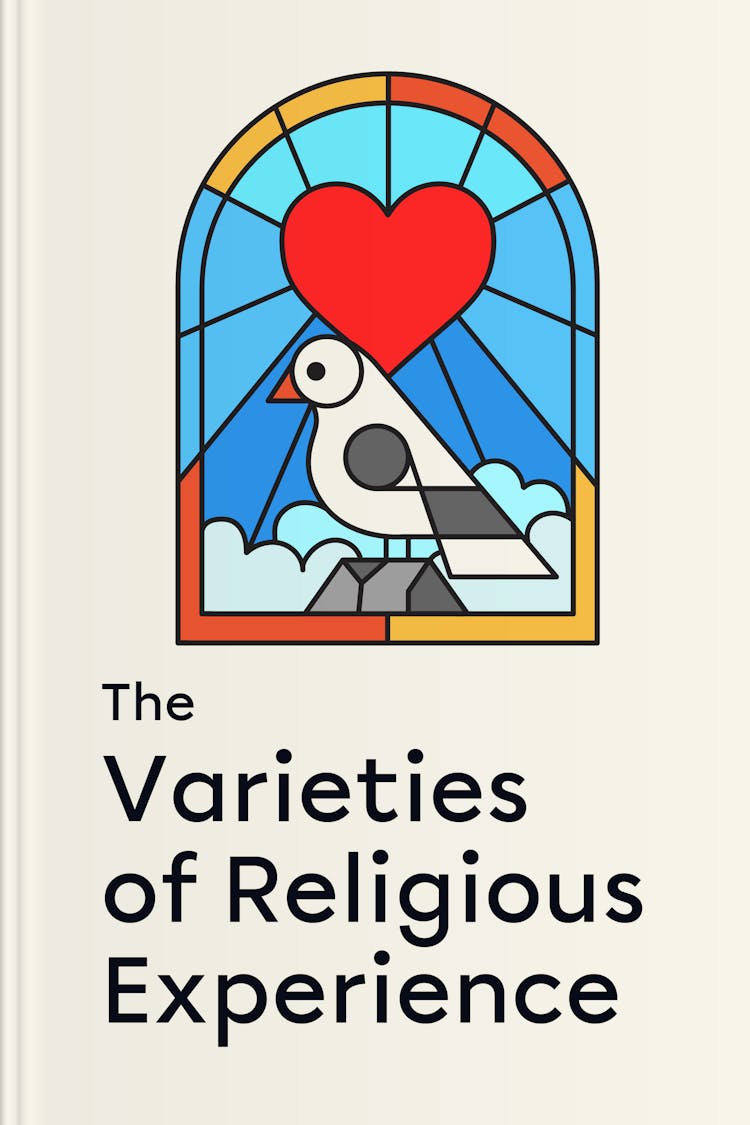 56
56The Varieties of Religious Experience
by William James
What is The Varieties of Religious Experience about?
"The Varieties of Religious Experience" explores the diverse and profound ways in which individuals experience and interpret religion. Written by a renowned philosopher and psychologist, this book delves into the subjective nature of religious experiences, examining the psychological, emotional, and spiritual dimensions. Drawing from a wide range of religious traditions and personal accounts, the author offers a comprehensive analysis of the human quest for meaning, faith, and transcendence.
Who should read The Varieties of Religious Experience
Individuals interested in exploring the diverse aspects of religious experiences.
Scholars and academics studying the psychology of religion.
Seekers of spiritual enlightenment and understanding.
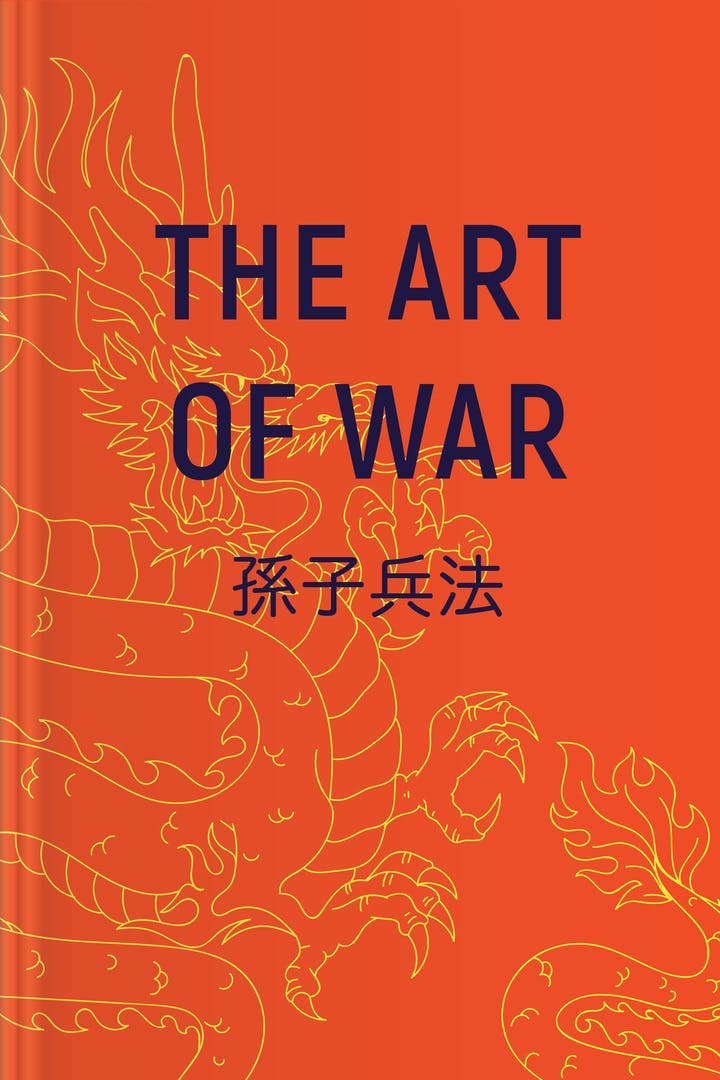 57
57The Art of War
by Sun Tzu
What is The Art of War about?
"The Art of War" is a timeless military strategy book that offers profound insights into the art of warfare. Written by an ancient Chinese military general, this influential text delves into various aspects of warfare, including tactics, leadership, and the importance of understanding one's enemy. With its concise and practical advice, this book has become a go-to guide for military strategists and business leaders alike, providing valuable lessons on how to achieve victory in any competitive situation.
Who should read The Art of War
Military strategists and leaders seeking timeless wisdom on warfare.
Business executives looking to apply strategic principles to their organizations.
History enthusiasts interested in ancient Chinese military philosophy.
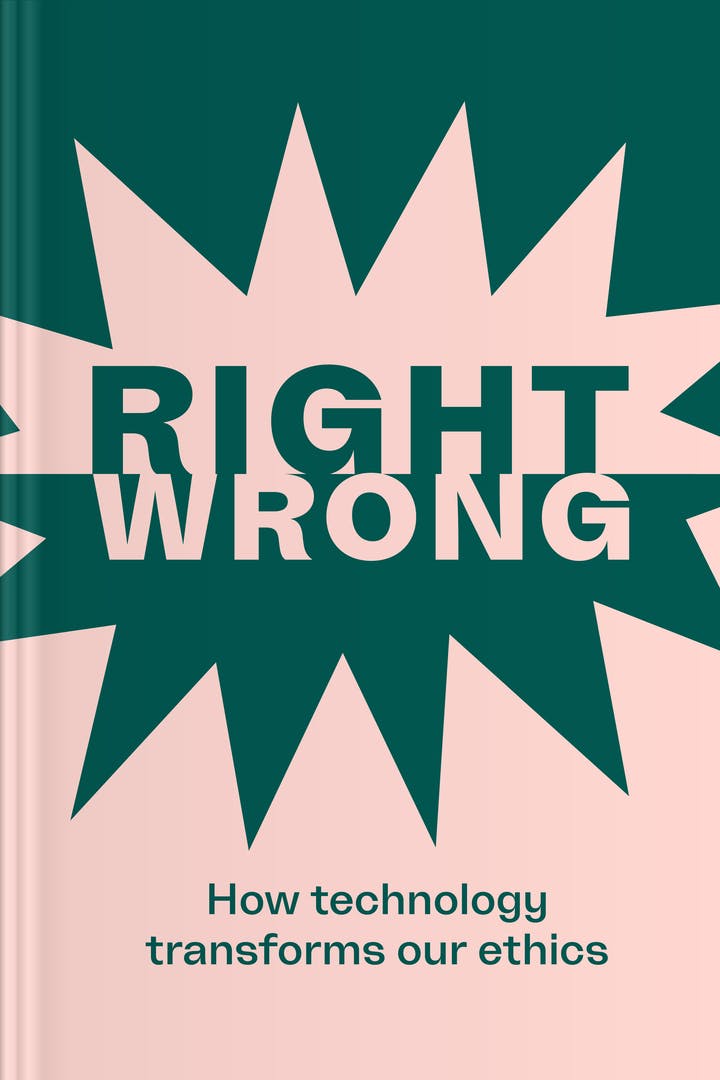 58
58Right Wrong
by Juan Enriquez
What is Right Wrong about?
"Right Wrong: How Technology Transforms Our Ethics" by Juan Enriquez explores the profound impact of technology on our moral compass. Through thought-provoking analysis and real-life examples, Enriquez delves into the ethical dilemmas arising from advancements in fields like artificial intelligence, genetic engineering, and robotics. This book challenges readers to critically examine the evolving relationship between technology and ethics, urging us to navigate the complex ethical landscape of our rapidly changing world.
Who should read Right Wrong
Technology enthusiasts seeking to explore the ethical implications of innovation.
Ethicists and philosophers interested in the intersection of technology and morality.
Business leaders navigating the ethical challenges posed by technological advancements.
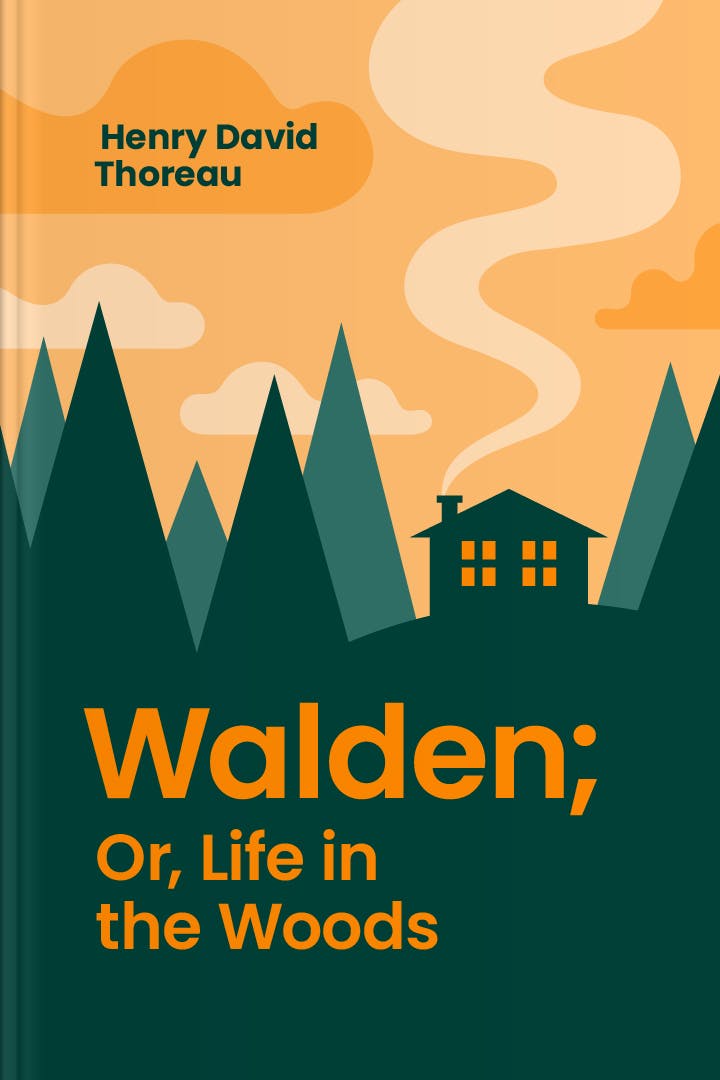 59
59Walden; or, Life in the Woods
by Henry David Thoreau
What is Walden; or, Life in the Woods about?
In this classic work, the author recounts his two-year experience living in a secluded cabin near Walden Pond. Through introspection and observation of nature, he reflects on the simplicity of life, the pursuit of self-reliance, and the importance of living deliberately. Thoreau's profound insights and poetic prose invite readers to contemplate the essence of existence and the true meaning of freedom in the midst of a rapidly changing world.
Who should read Walden; or, Life in the Woods
Nature enthusiasts seeking a deeper connection with the wilderness.
Philosophers and thinkers exploring the concept of simplicity and self-reliance.
Individuals yearning for a break from modern society's fast-paced lifestyle.
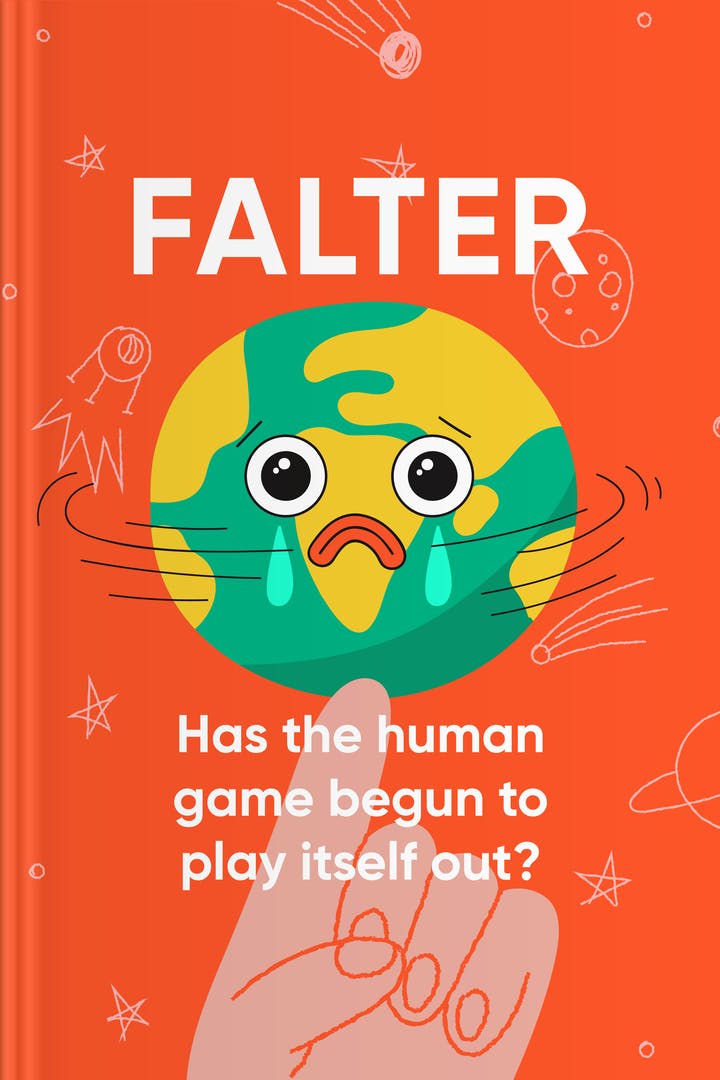 60
60Falter
by Bill McKibben
What is Falter about?
In this thought-provoking book, the author delves into the pressing issues of our time, exploring the threats posed by climate change and technological advancements. Bill McKibben raises crucial questions about the future of humanity, examining the consequences of our actions and the potential for a faltering human game. With a blend of scientific analysis and philosophical reflections, this book serves as a wake-up call, urging readers to consider the urgent need for change in order to secure a sustainable future.
Who should read Falter
Environmentalists and climate change activists seeking a comprehensive analysis.
Policy makers and scientists interested in the future of humanity.
Individuals concerned about the long-term survival of our planet.
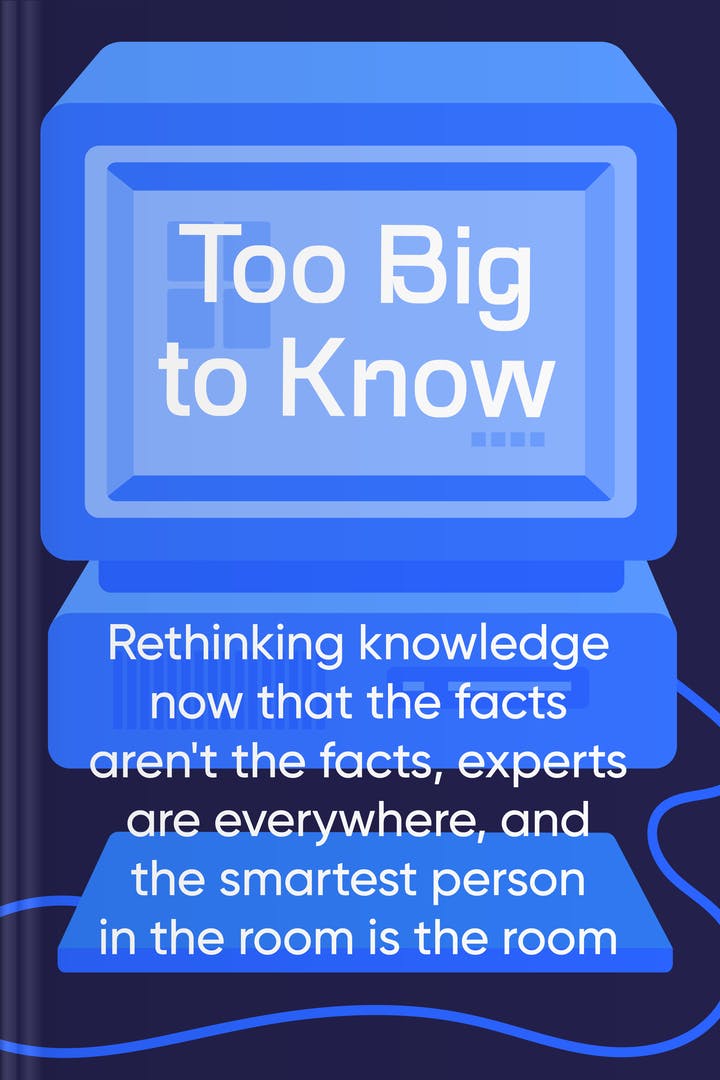 61
61Too Big to Know
by David Weinberger
What is Too Big to Know about?
In this thought-provoking book, David Weinberger challenges traditional notions of knowledge in the digital age. He explores how the internet has transformed the way we acquire and share information, blurring the lines between facts and opinions. With experts and vast amounts of data readily available, he argues that knowledge is no longer confined to individuals but emerges from the collective intelligence of online communities. A must-read for anyone seeking to understand the evolving nature of knowledge in our interconnected world.
Who should read Too Big to Know
Students and academics seeking a fresh perspective on knowledge.
Professionals in the information age grappling with the changing landscape.
Individuals interested in the impact of technology on knowledge.
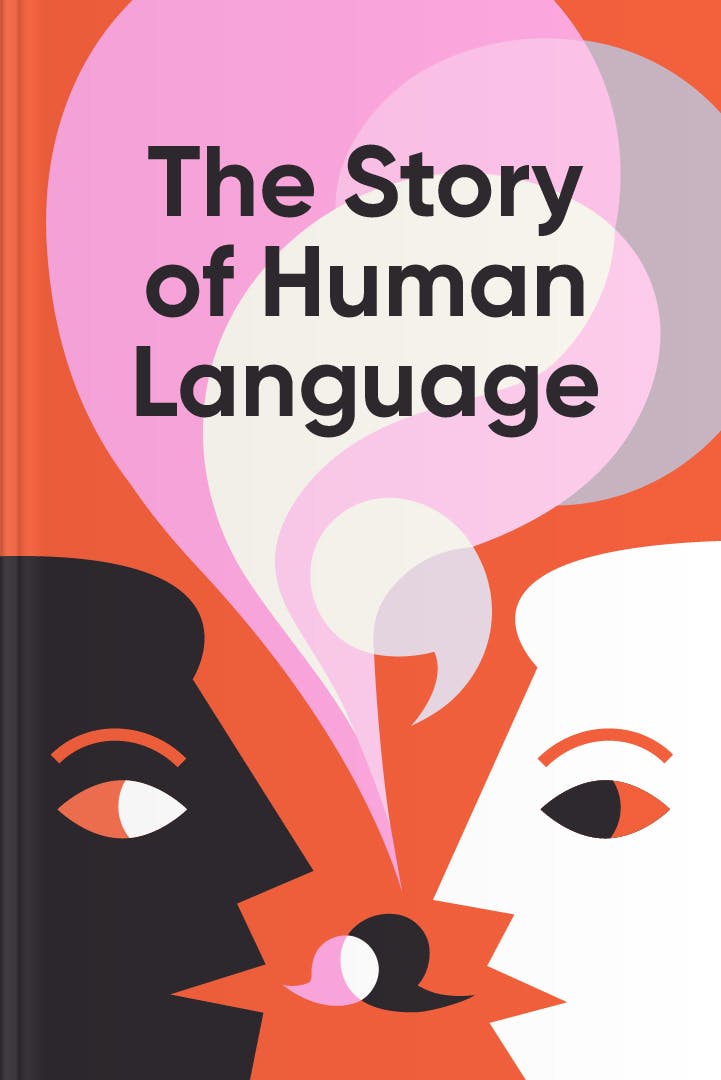 62
62The Story of Human Language
by Dr. John McWhorter, Ph.D.
What is The Story of Human Language about?
In this captivating exploration, a renowned linguist delves into the fascinating evolution of human language. Dr. John McWhorter, Ph.D., takes readers on a journey through time, unraveling the origins, development, and diversity of languages spoken by humans across the globe. With engaging anecdotes and insightful analysis, this book offers a comprehensive understanding of how language shapes our world and reflects the intricacies of human communication.
Who should read The Story of Human Language
Linguistics enthusiasts seeking a comprehensive exploration of human language.
Students studying linguistics or language-related fields looking for a foundational text.
Curious individuals interested in the evolution and diversity of human language.
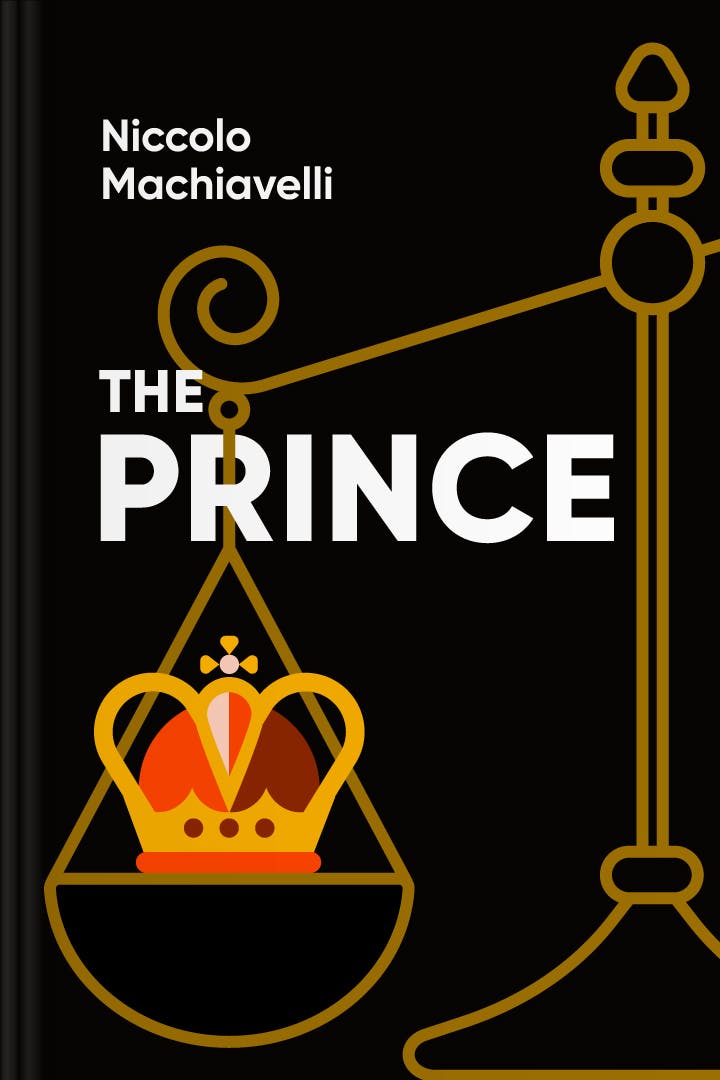 63
63The Prince
by Niccolò Machiavelli
What is The Prince about?
"The Prince" is a political treatise written by an Italian author during the Renaissance period. This influential book explores the nature of power and the strategies rulers should employ to maintain and expand their authority. Drawing from historical examples and Machiavelli's own experiences, it offers practical advice on leadership, diplomacy, and the manipulation of public opinion. Controversial for its ruthless approach, "The Prince" remains a thought-provoking guide to the complexities of governance.
Who should read The Prince
Aspiring politicians seeking insights into the art of leadership.
History enthusiasts interested in Renaissance political philosophy.
Individuals curious about the dark realities of power dynamics.
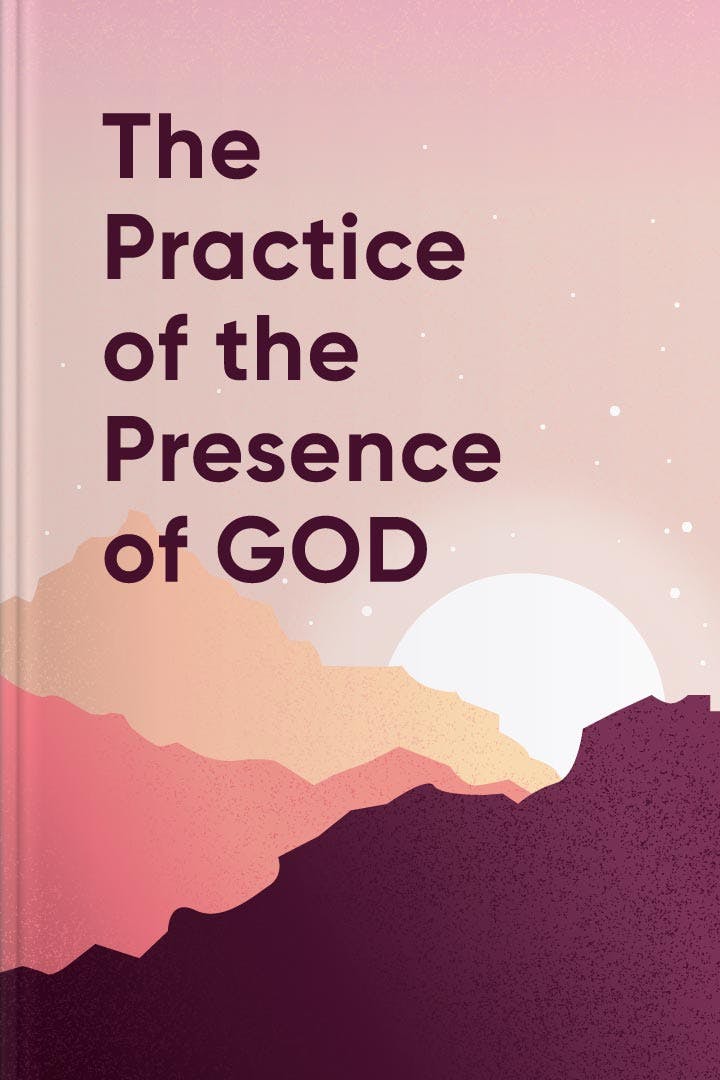 64
64The Practice of the Presence of God
by Brother Lawrence
What is The Practice of the Presence of God about?
"The Practice of the Presence of God" is a spiritual guide that offers profound insights into cultivating a deep and constant connection with the divine. Written by an anonymous author known as Brother Lawrence, this book explores the importance of living in God's presence throughout daily life. Through simple yet profound teachings, readers are encouraged to seek God's companionship in every moment, finding peace, joy, and fulfillment in the practice of mindfulness and devotion.
Who should read The Practice of the Presence of God
Christians seeking a deeper connection with God through daily practice.
Individuals looking for spiritual guidance and mindfulness in their lives.
Those interested in exploring the teachings of a humble and devoted monk.
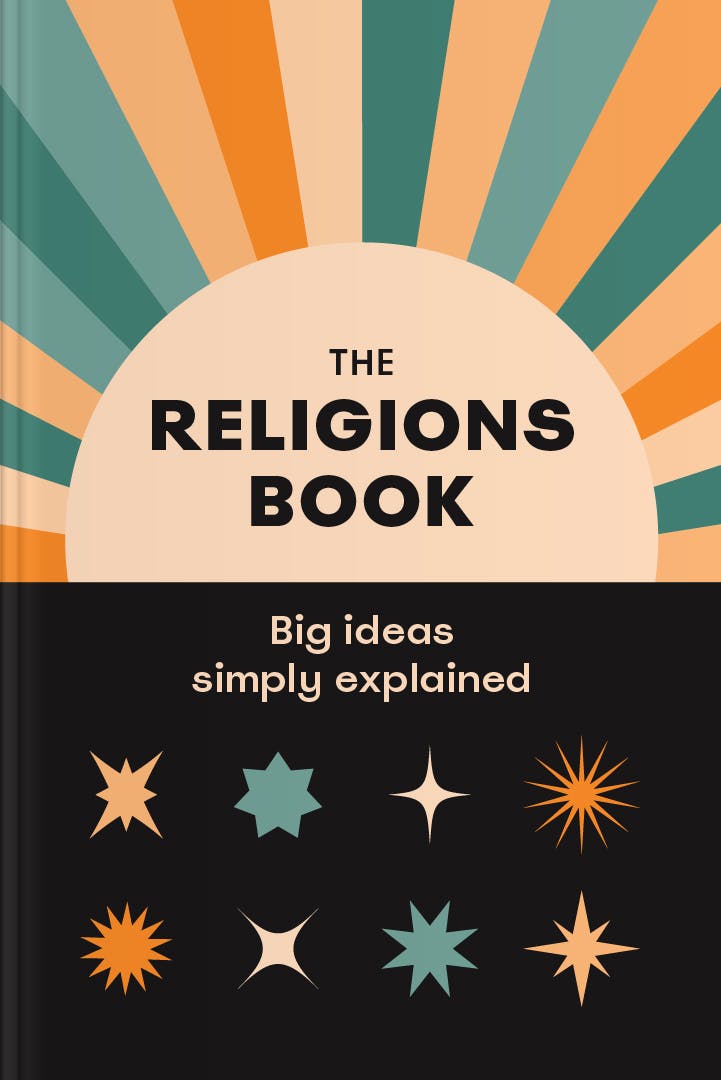 65
65The Religions Book
by Shulamit Ambalu, Michael D. Coogan, Eve Levavi Feinstein, Paul Freedman, Neil Philip, Andrew Stob
What is The Religions Book about?
"The Religions Book: Big Ideas Simply Explained" is a comprehensive guide that explores the major religions of the world, providing a clear and concise overview of their beliefs, practices, and historical significance. Written by a team of experts, this book presents complex religious concepts in an accessible manner, making it an invaluable resource for anyone seeking to understand the diverse and fascinating world of religion.
Who should read The Religions Book
Students studying world religions seeking a comprehensive and accessible guide.
Individuals curious about different religious beliefs and practices.
Readers interested in exploring the historical and cultural impact of religions.
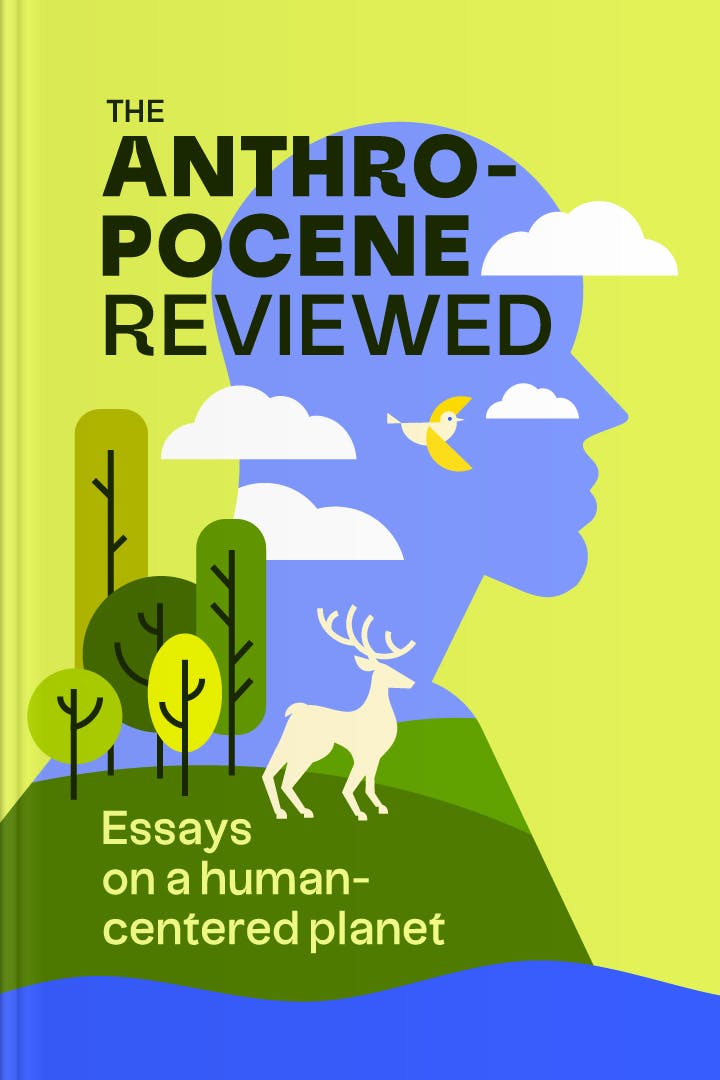 66
66The Anthropocene Reviewed
by John Green
What is The Anthropocene Reviewed about?
"The Anthropocene Reviewed" is a collection of thought-provoking essays by a renowned author. With a focus on the human impact on our planet, the book explores various aspects of our existence, from the mundane to the extraordinary. Through insightful and witty observations, the author delves into topics such as technology, animals, and historical events, offering a unique perspective on the human experience in the Anthropocene era.
Who should read The Anthropocene Reviewed
Fans of John Green's thought-provoking and insightful writing style.
Environmentalists and those interested in the impact of humans on the planet.
Readers seeking a unique blend of personal anecdotes and scientific analysis.
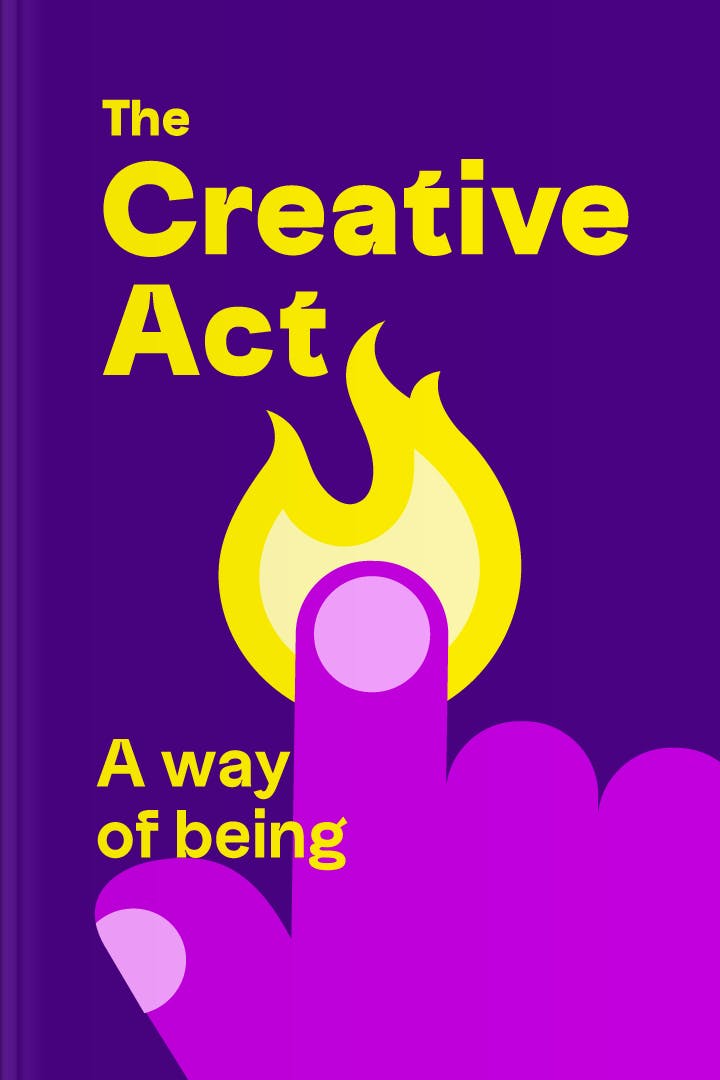 67
67The Creative Act
by Rick Rubin
What is The Creative Act about?
"The Creative Act: A Way of Being" explores the transformative power of creativity in our lives. Written by renowned author Rick Rubin, this book delves into the essence of creativity as a fundamental aspect of human existence. Through insightful anecdotes and thought-provoking analysis, Rubin invites readers to embrace their own creative potential and discover how the act of creation can shape our identities, relationships, and overall sense of purpose.
Who should read The Creative Act
Aspiring artists seeking inspiration and guidance in their creative journey.
Individuals interested in exploring the transformative power of creativity.
Music enthusiasts curious about the creative process of renowned producer Rick Rubin.
